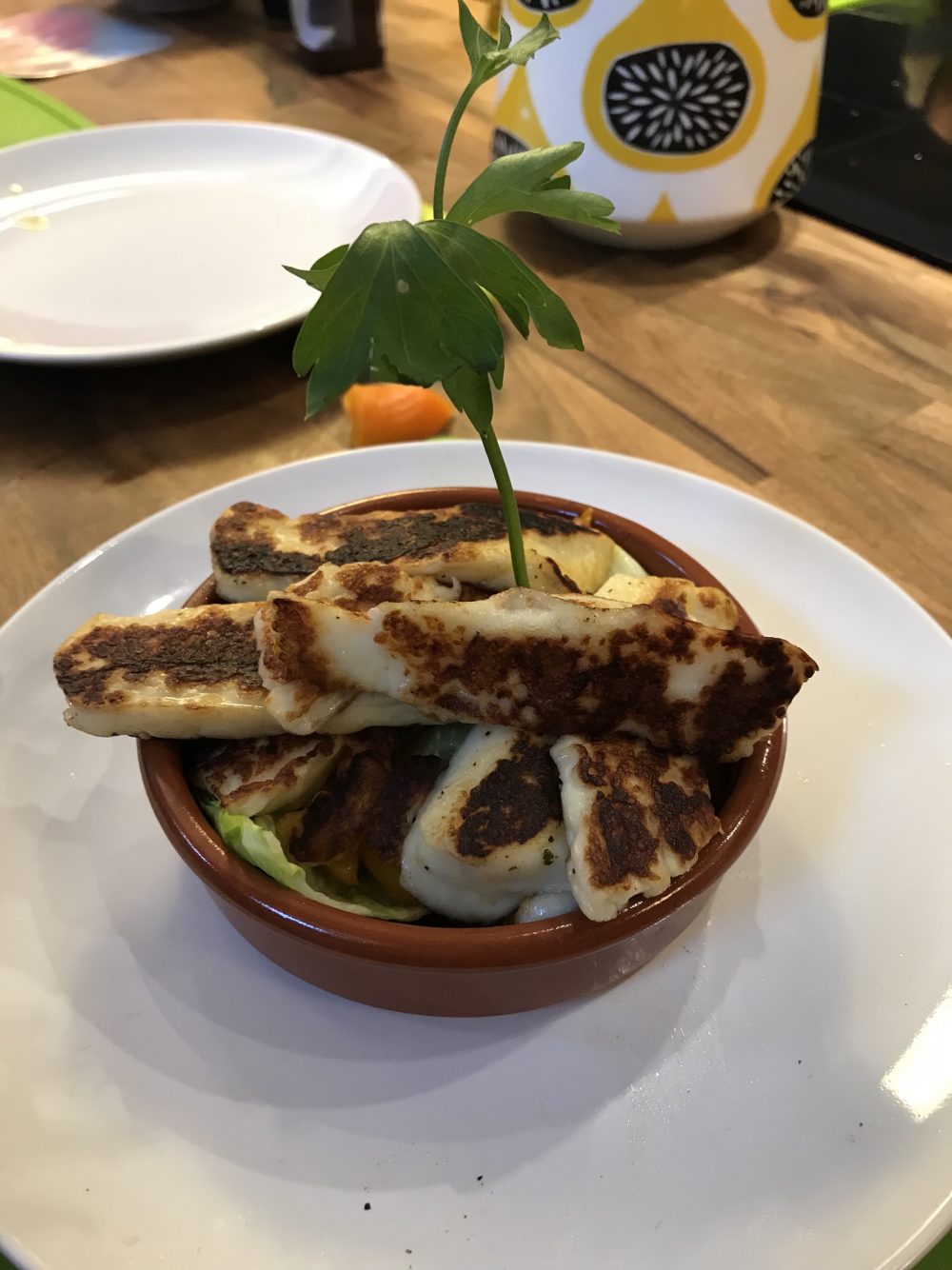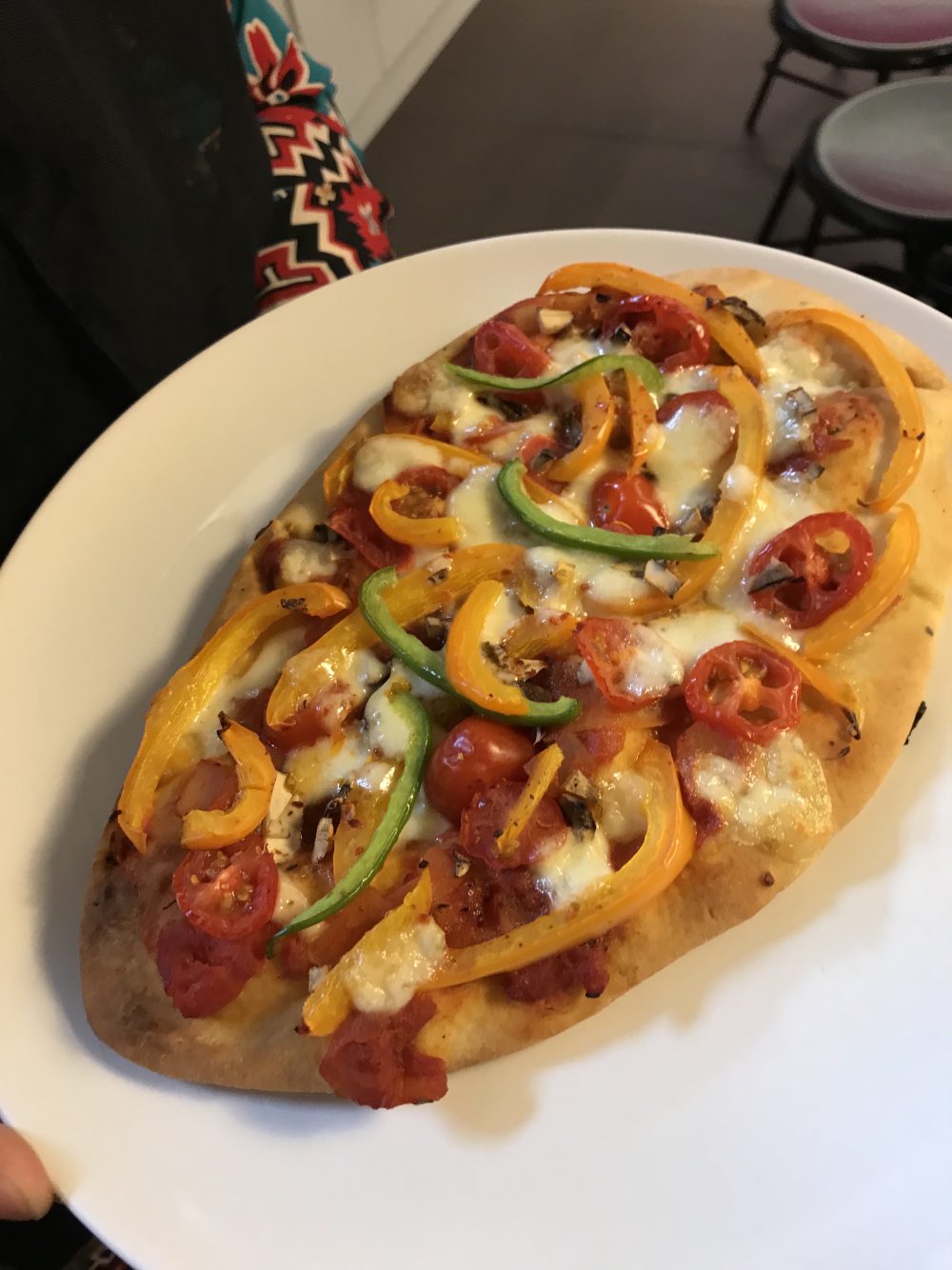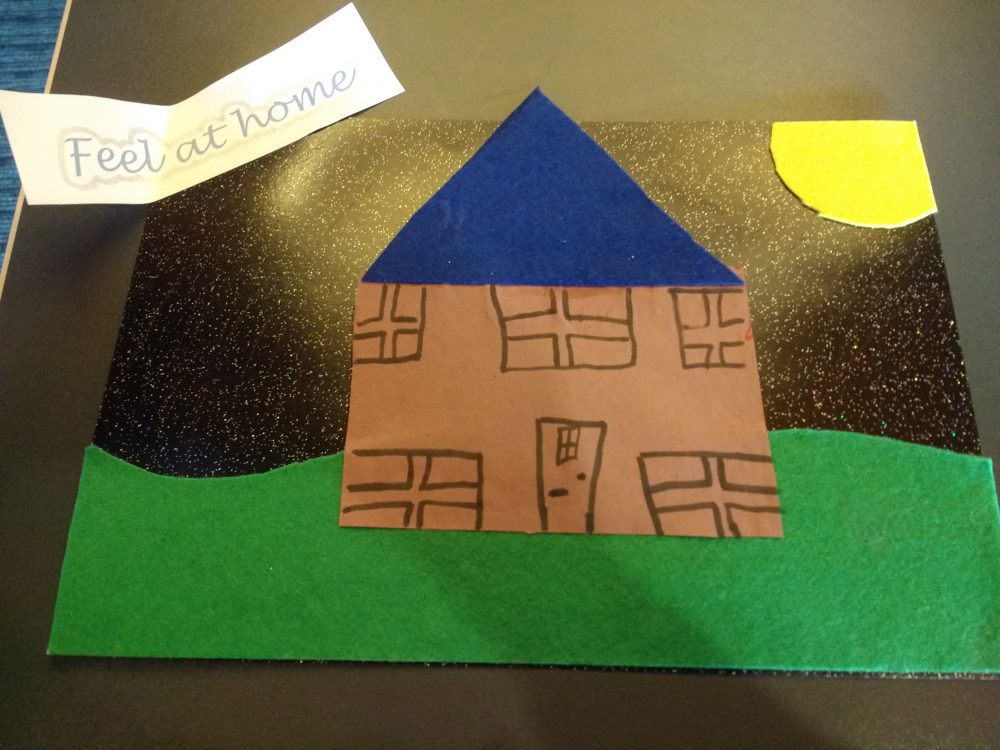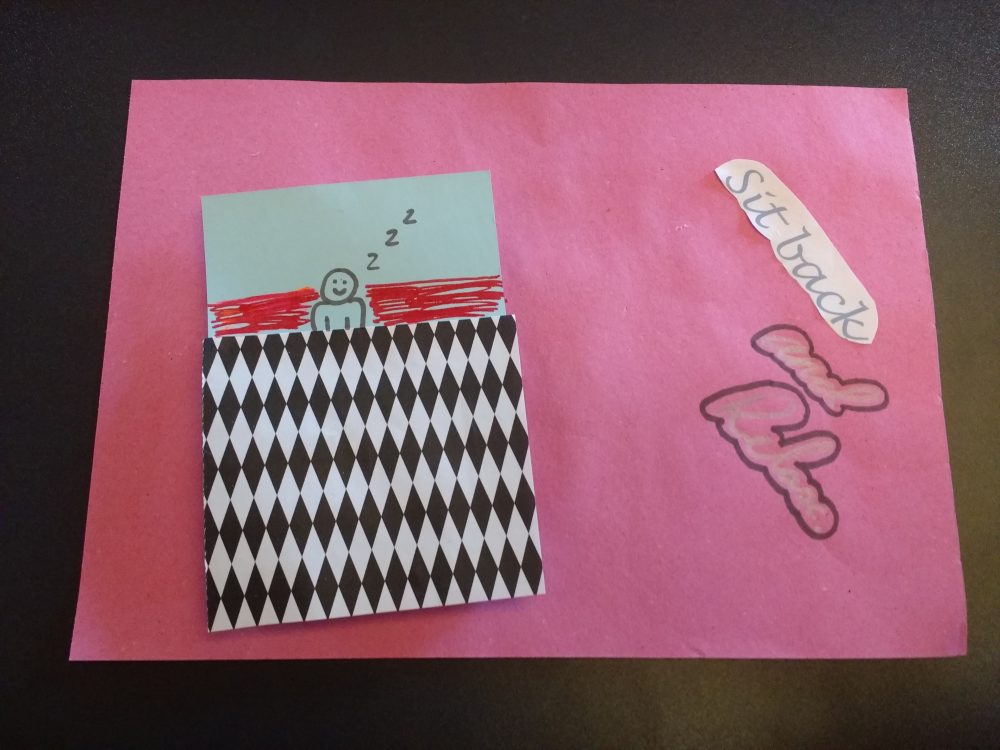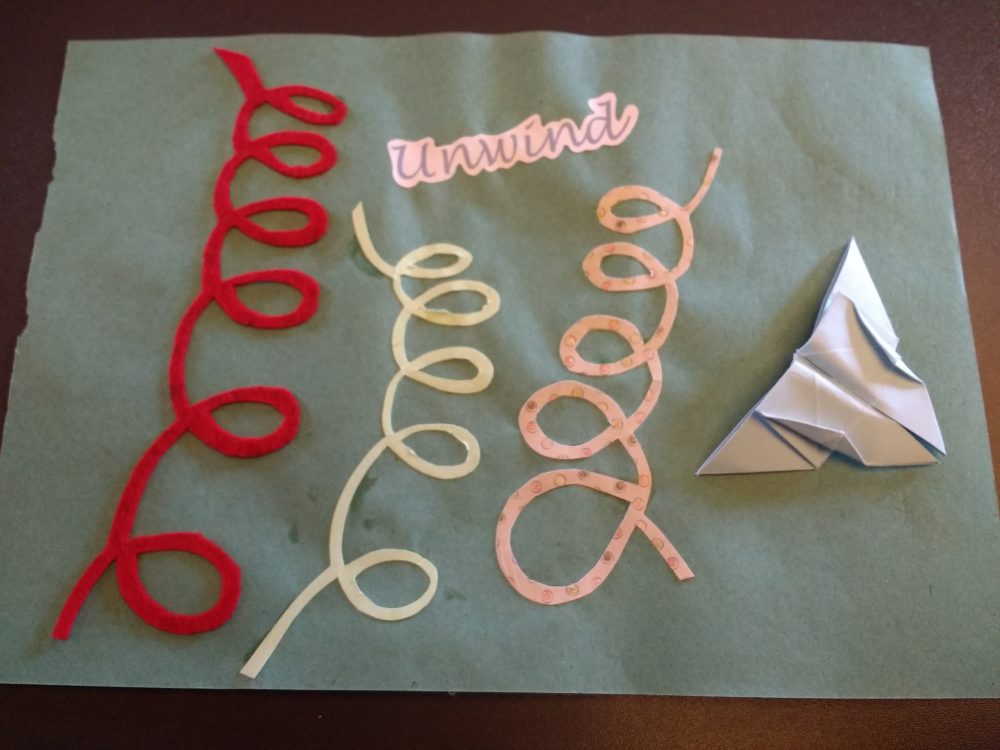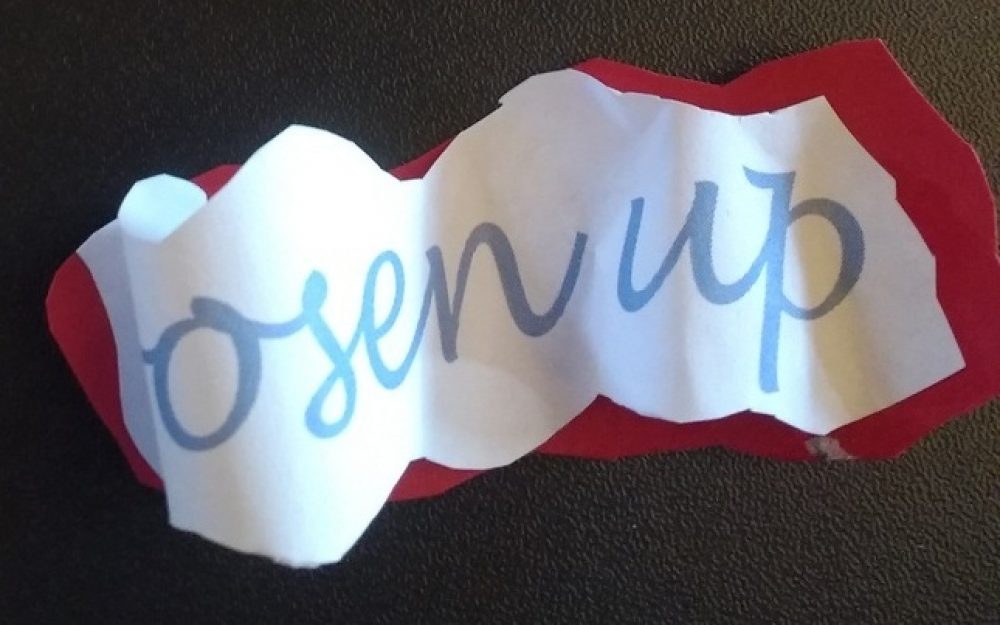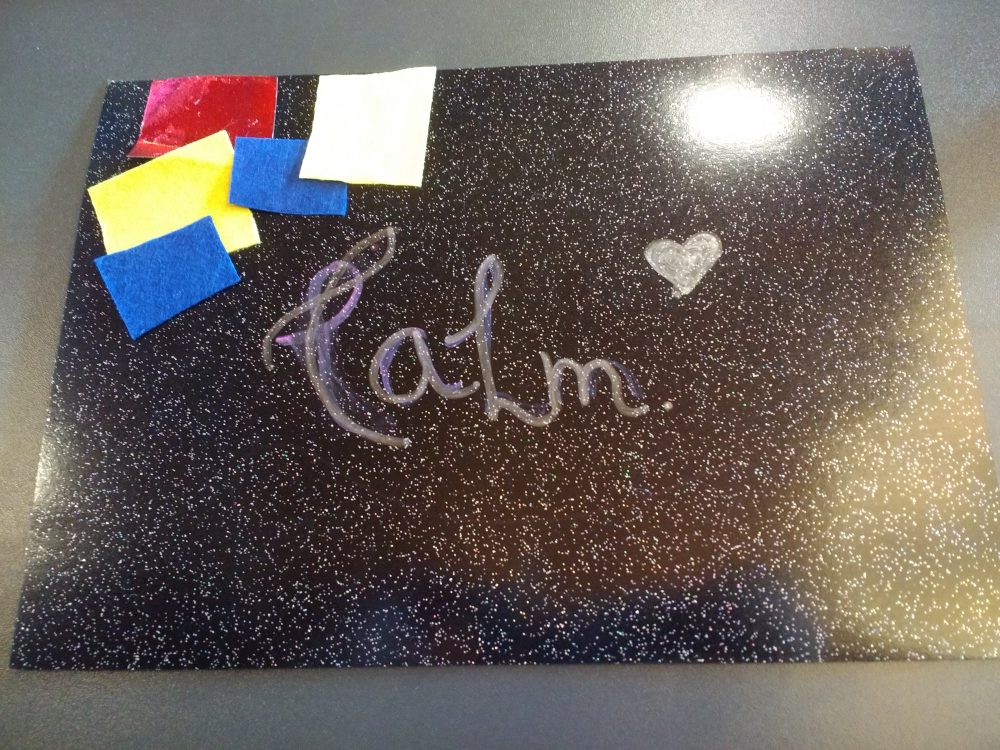You're on the Young People Site
Dedicated to self-harm recovery, insight and support.
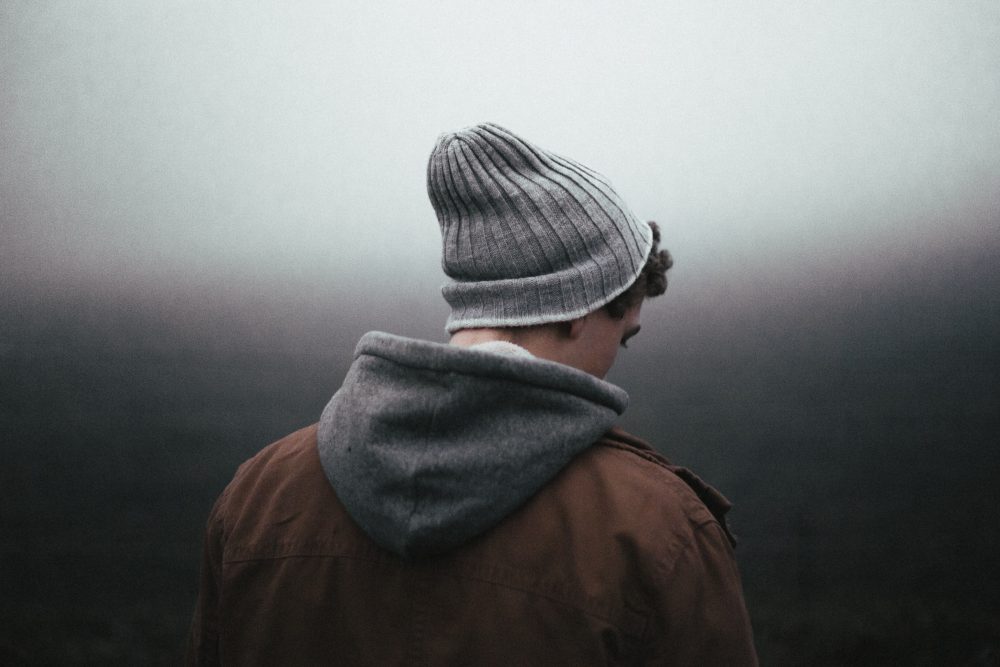
More young people than ever feel lonely. A recent survey by the BBC suggests that 40% of 16-24 year olds would say they feel lonely.
Most of us check our social media pretty often, and it looks like everyone else is having an amazing time doesn’t it? Pictures of them with friends at a party, on holiday with their family, chilling with friends that we don’t know, checking into the cinema with their partner…it looks like they aren’t lonely at all doesn’t it?
The reality is far from it – some people have many acquaintances to make it look like they aren’t lonely. They fill their lives with people who aren’t really friends and people they possibly don’t even trust much because they want to block out that feeling of loneliness.
Some people struggle to make friends and their online friends are the ones they talk to most because they can ‘pretend’ to be something they aren’t… but then end up feeling lonelier.
The common factor in the increase of loneliness in young people, is the rise in social media use because it doesn’t often create deep, meaningful friendships that are based on trust and shared lives. Ironically social media makes us feel lonelier, not less lonely.
So, let's look at some of the ways you could combat feeling lonely:
1️⃣ Seriously reduce your social media time.
2️⃣ Do something that creates connections with people face to face.
3️⃣ Find a hobby group – fitness, craft, music?
4️⃣ Eat with your family at mealtimes.
5️⃣ Say ‘yes’ to trying something new.
6️⃣ Connect with cousins, siblings, grandparents and wider family more.
There are lots of Organisations out there that offer opportunities to join groups or clubs in order to connect with other young people your own age. Do some research in your local area to find out what's going on and what you might like to get involved with.
If cooking's your bag - here at Youthscape, we offer something called Open House, which is a cookery project run by Gemma, our Drop-in Manager, and a professional chef! Over the eight weeks of the course you will learn to cook different dishes, improve your kitchen skills, and host a dinner for a disadvantaged group from the local community...
The aim of the project is to develop confidence in abilities, build relationships, integrate into our daily after-school Drop-in project, engage with a different group in the community, and through this become more connected, improve self-esteem, and begin to gain the skills that will enable young people to recognise and manage their feelings of loneliness and social isolation now and in the future.
If you are a young person aged 11-15 and living in Luton, why not get in touch with Gemma to find out more about our Open House project?
No one is to blame for feeling lonely: it’s not your fault, nor is it anyone else’s; so – this week; begin the journey to feeling less lonely.

Is there a link between self-harm and eating disorders?
Self-harm in its broadest sense incorporates eating disorders as a type of harm to your health and body. But there are also links between self-harm and different types of eating disorders. Both behaviours affect a lot of young people, and they share a lot of the same traits, such as low self-esteem, a perfectionist personality, anxiety and sometimes a history of trauma, abuse or family difficulty. Of course every person and situation is different, though, and so we recognize that although these are the common themes they are not the only reasons behind such behaviours, and not everybody will cross over between the two.
The prevalence of self-harm in people with eating disorders is thought to be about 25%, and is particularly high among people who engage in the binge-purge cycle of Bulimia Nervosa. For many, self-harm and an eating disorder co-exist, but for others self-harm can develop to replace an eating disorder or vice versa. If someone tries to give up their harming when they are not psychologically ready (for example, doing it to please someone else) then another self-destructive symptom can easily develop in its place. This is because both conditions act as ways for an individual to cope with, block out, and release intense feelings of anger, shame, sadness, loneliness, or guilt. A person needs to be able to address these feelings and find ways of dealing with them in order to break free of the harming cycle.
For some people self-harm and eating disorders could also be a type of punishment and way of expressing self-hatred towards the body. If somebody has poor self-image and is suffering with an eating disorder, they probably experience feelings of self-loathing, which in turn leads to a lack of respect for their body. This can then open the door to something like self-harm. Within the world of someone with disordered eating, especially one built around control and routines, the addition of self-harm might then also become a way of punishing the self for not sticking to a strict routine, or provide relief from the constraints of that routine. The relationship between the two conditions is complex and can differ from person to person.
Self-harm often goes alongside other emotional difficulties and it is really important that all things are considered together and addressed fully, even if it is decided that the different symptoms will be treated separately. Self-harm and eating disorders, especially when occurring together, can seem like an impossible cycle to be trapped in, but recovery from both is very possible. Seeking professional support gives someone the best chance of making a full recovery.
If you or anyone you know is affected by an eating disorder, you can talk-one-to-one with someone from Beat via their web chat service.

The blog below was written by Marc. Marc is the founder and owner of Dingy Life, a small active clothing brand based in the UK.
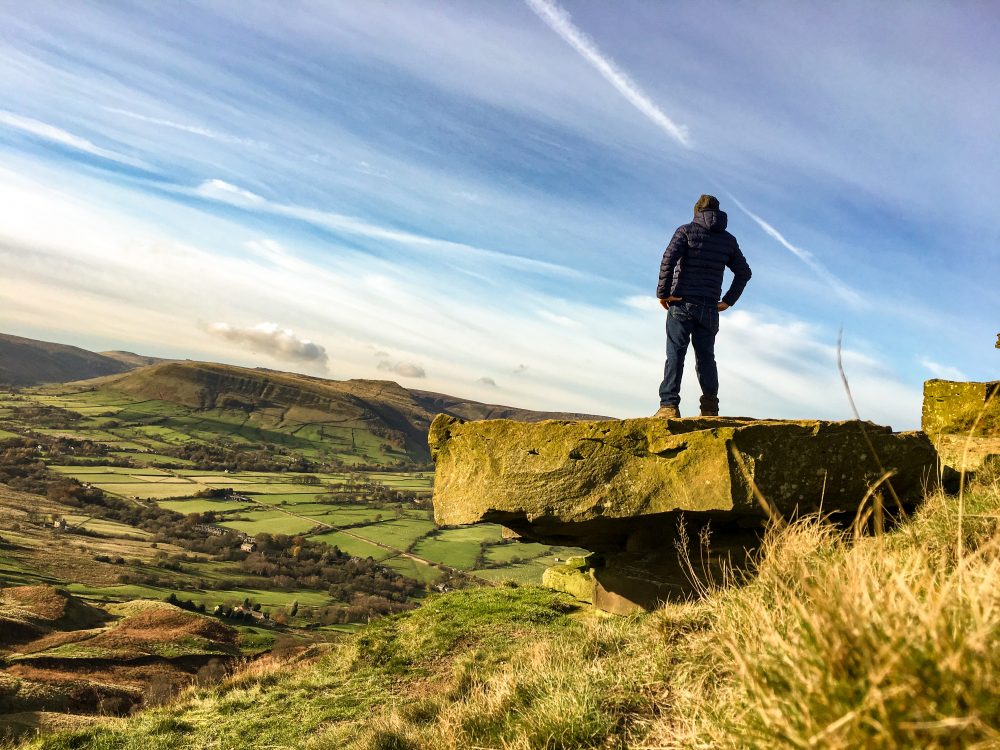
I am a veteran mountain biker and outdoor activity enthusiast and mentor. I have competed in endurance events and races at national level and around the world. In the past years my health has suffered through various traumas in my life and I suffer from depression, anxiety and self-harm.
Along with SelfharmUK, who have some amazing resources and provide some invaluable help, being active and connecting with the outdoors has been a great medicine and helped enhanced my health and mental wellbeing. With the combined help from SelfharmUK, CBT and outdoor activities all have helped me get through some dark and testing times.

So through my journey came a positive outcome - to inspire others who are suffering with mental illnesses, to connect with the outdoors, to enhance health and wellbeing, and to provide information and support. This year I will be competing in a 24hr mountain bike race raising awareness for mental health in the process.
We ride, we climb, we paddle, we swim, we run, we wild camp, we visit some great places all to inspire others. We also design our own branded clothing and sell second hand clothing to raise money for some great causes... and with that in mind, Dingy was born.

Dingy is an outdoor inspired clothing brand based in the UK, who design their own clothing and sell recycled clothing to support people with mental illness. 20% of our profits are donated to SelfharmUK and Mind.
You can support Dingy Life, SelfharmUK and Mind by purchasing products here.

The blog post below was written by Ellen.
When I was 11, I began to suffer from intense panic attacks and I turned to self harm to alleviate some of that pain. Seven years later, I’ve got a long list of diagnosis, including anorexia nervosa, depression and anxiety.
Throughout my GCSEs I barely went to school. I taught myself the courses at home and pushed through my exams. I managed to get A*s, but I couldn’t shake the feeling that I wasn’t really living.
The school I was in at the time was very focused on getting the top grades and getting girls into the ‘best' universities. But even at 11 I knew I didn’t want to be a lawyer or a doctor or an accountant or an engineer… but I couldn’t work out what I did want. And I’ve realised that that’s okay.
One of the biggest steps I’ve taken was starting therapy again. I stopped going for a long time because my body and mind were too weak to benefit from it because of my anorexia, but once I was at a stable weight I went back. My therapist has allowed me to open my eyes to the beauty in the world and always encourages me to chase my dreams, even if I’m not sure exactly what I want. She’s helped me to look for coincidences in life; the world starts to connect up and forms a safety net around you.
She was crucial in helping me transfer to an art college for sixth form, and it’s one of the best decisions I’ve ever made. Things are still really hard sometimes but I am learning to get in touch with myself more and I feel like the universe is there to support me.
I have found myself in art; I joined weekend classes in a London photography studio when I was 15 and I realised I could explore a format people want to see and that makes sense to me. I love to create narratives through both words and images; I am interested in psychology and colour theory and I use art to try and understand myself and others.

I created a scanography series in which I expressed my mental health journey through distorted self-portraits and eerie colour palettes. I was inspired by Amy Hughes, a painter I found reading Aesthetica magazine. Encased (2017) is psychologically and physically charged; I was struck by the strong highlights arching over a figure's back with an agonised, scrunched up face, distorted by the reflected light and texture of a plastic prison. I reached out to Amy and interviewed her for my project - she even invited me to the opening of her show! She encouraged me to express my true-self, which helped me develop my interest in the nature of mankind.
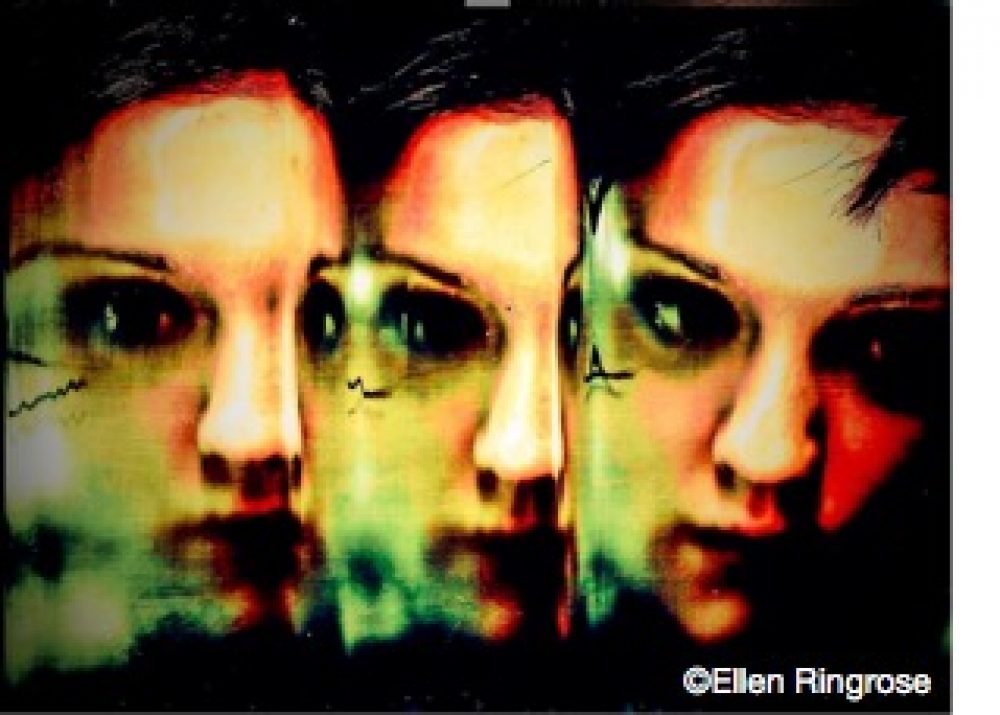
According to a survey carried out by the Mental Health Foundation 2018, 74% of adults in the UK alone report feeling overwhelmed or unable to cope. 51% of these adults felt depressed, and 61% felt anxious. 16% had self harmed and 32% said they had experienced suicidal thoughts. It is hard to tell whether we are just noticing and appreciating the effects of mental health more nowadays, or if there is a crisis as dramatic as reported. Either way, to experience mental health issues or to support someone with them is incredibly, painstakingly hard. I know from my own experience how isolated, hopeless and empty these problems can make you feel. Some of my images are my attempt at describing how you can feel like you're living multiple lives; we lie to people and tell them we're okay, we are misunderstood by others, and we don't know how we even really feel.
As the scanner moved, I lifted my head and lowered it at regular intervals to create the more frozen style of image. I’ve also tried to depict the feelings of isolation, disorientation and sadness. I pressed my face against the scanner to create visible pressure on my nose and forehead; the world is so vast and scary, yet we can feel caught-up and claustrophobic living in it. The qualities of the images create a kind of wavering mood-line - a bit like a line graph - as well as confusion and feeling out of control. I moved my face along with the scanner, not worrying about the slight shake of my body as I did so as this is what created the wavering effect.
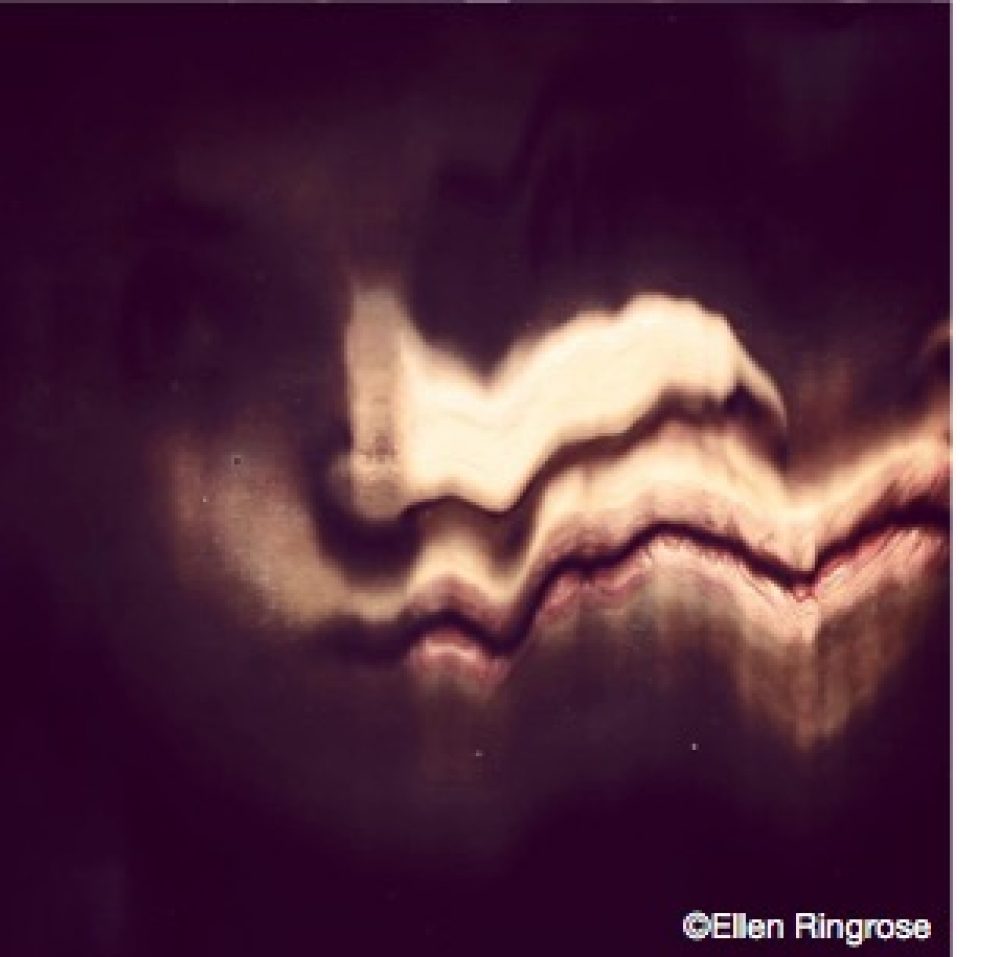
I didn't want to make them specific to any one mental health issue; they are universal and can be understood by many. For instance, some images may as a representation of schizophrenia. I wanted to create a sense of understanding for those suffering due to mental health issues, be it the one who is ill or the one caring for them, and also to educate those who think the mentally ill are simply 'over dramatic' or 'not worth helping'.
Reasons to try being creative 🎨...
1️⃣ Creatives activities can help to reduce stress levels, aid mental calmness and serve as a relaxing distraction. You can get absorbed in your mental flow when creating.
2️⃣ Art also helps creative thinking; it can better your problem-solving skills. There are no wrong answers in art and we are allowed to imagine our own solutions. Flexible thought can stimulate in the way that learning a new language can.
3️⃣ Art can improve cognitive abilities and memory for people with serious brain disorders, such as dementia, by stimulating cell growth in the brain.
4️⃣ Chronic health conditions can be left behind while you create; a positive experience, and a chance to achieve allows you to express your feelings and help you find your identity.
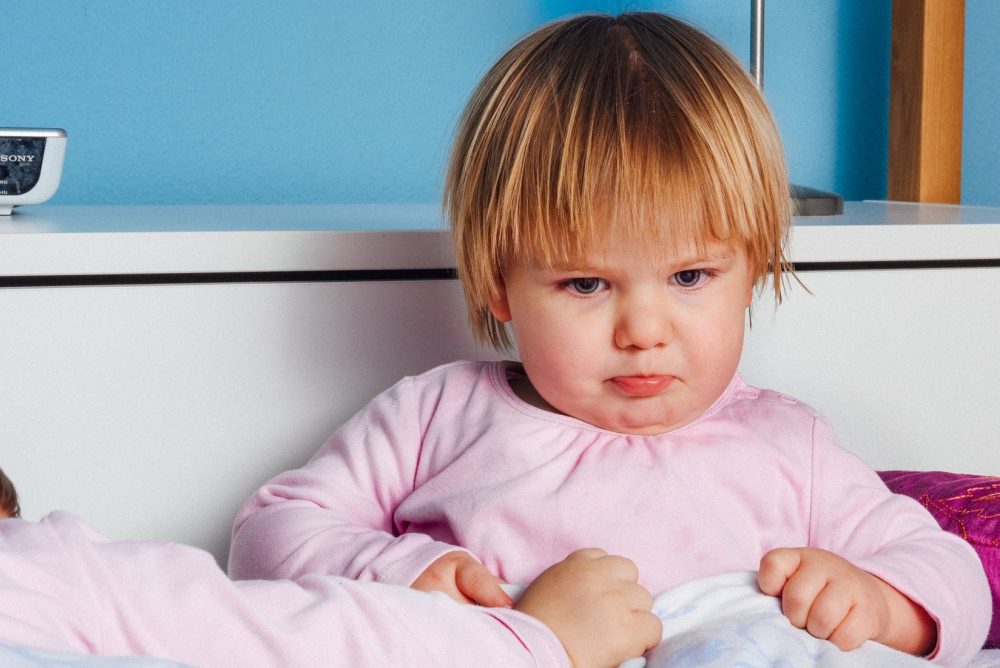
The blog below was written by Aurora.
Even if you’re like me and don’t go in for New Years resolutions, you probably started January with a lot of excitement, great expectations and ideas of what you were going to do differently, and how you were going to accomplish all the things you didn’t get to do last year.
And now, a few weeks later, you’re probably finding that you haven’t even started on half the things you promised yourself you would do, and that your energy and motivation have taken a big dive. If that’s the case, then you’re probably feeling angry and disappointed with yourself. Maybe embarrassed, if you’d boasted to your family, friends and colleagues about what you were going to do. This disappointment can often reinforce the bad habits you were trying to beat, and this can make it even harder to get up and try again.
There are two important things to keep in mind if you’re in this situation.
The first is that it’s always difficult, after the Christmas break, to get back into the regular swing of school or work. It’s always going to be a bit jarring, so it’s natural that you’re going to be more tired in January than in other months of the year. So you shouldn’t be disappointed in yourself just because you’ve been struggling to find the necessary energy.
The second, and most important thing, to remember when planning your New Year goals is to keep them realistic. It’s very easy, at the dawn of the New Year, bursting with excitement and optimism, to set yourself really big objectives, or aim to achieve them in a brief amount of time.
For example, if you’re overweight and want to get fit, you might have said to yourself: “Okay, this year I’m going to hit the gym three times a week, and I’m going to go on a diet. No more Fried Chicken Fridays...” Or something along these lines.
You have to bear in mind that just dieting, or developing a regular exercise routine, is hard enough by itself. Especially if you’re not used to it. So attempting them both at the same time would be very difficult; particularly if you’re struggling to adapt back into school or work. You may have a better chance of success if you keep your goals small and specific. Set yourself a measurable plan instead of a few abstract ideas about what you want to achieve.
To be clear, there is absolutely nothing wrong with challenging yourself. It’s better to set the bar too high than to just skate through life with no challenge. But in order to accomplish your goals, you have to balance your desires with what you can realistically achieve, and remember that nothing worth having comes without time and effort, and the occasional lapse. Having a well thought plan will better prepare you for dealing with failures.
And remember, don’t be too hard on yourself if you stumble. It’s only January after all!

We asked some people we work with the top things they like to do to look after themselves. They didn't have to be clever or super creative suggestions, all they had to be were real. 😉
💭"I recognise that sometimes I need time away from people and that’s OK. Yesterday I was feeling angry and stressed so I took an hour out in the middle of the day to just sit and read something that was nothing to do with work. I felt much better afterwards and was probably a much nicer person to be around too!"
- EMMA
💭"I’m hopeless at it but I know my mental health is better when I’m running regularly. It’s good for my physical health but I also appreciate the break from screens and conversation and a chance to sort out my thoughts while I run. The sense of achievement afterwards is a great encouragement too."
- JACK
💭"I like to get up early in the mornings and walk to a park near my house. There’s a bench at the top of the hill where you can see the whole town. It’s usually really quiet - just the birds singing and a handful of dog walkers. It’s a great place to pray and reflect on the day ahead."
- ABDUL
💭"Shower, tidy my room, and make myself a good dinner."
- FIONA
💭"I stretch! I like to do a few minutes of simple yoga stretching which makes me feel much better physically."
- TESSA
💭"I love taking time out for myself, and reading, with a cup of tea. I know it sounds boring, but taking some time for yourself is so important, and often overlooked as a form of simple self-care!"
- MEL
💭"I walk my dog. I have made friends." 🐶
- ROBBIE
💭"I have a bath. Or a snack. If at all possible I take myself out for coffee. I also like to re-read my favourite books sometimes."
- KATHERINE
💭"I try to do one good deed every day in order to always take something positive out of the previous 24 hours. I also like to appreciate what God has provided (one way I do it by seeing the beauty, diversity and produce in my garden). Another thing I sometimes like to do is to look up “worse day than you” on YouTube!"
- NEIL
~~~~ 🎊 How do you like to look after yourself? 🎊~~~~

The blog post below was written by Deanne.
I’ve never been good at introductions so here we are. My name’s Deanne, Im 16 and like many other teenagers struggle with my mental health. I’ve chosen to write for Selfharm UK because I want to share my story, advice and for you to all know that you’re not alone.
Anxious, paranoid, scared, lonely and isolated. Those five words describe who I was for a long period of time. For someone at the age of 16 this can be an overwhelming experience.
On the day that I found myself in the A&E department with two police officers I couldn’t feel anything but pure fear. Afraid of the two ladies sat with me, afraid of the outcome of this assessment. I had no clue what my future would hold for me and I didn’t care. This lead to the destruction of my life, not being able to remain in school, and ruining relationships with those who cared for me the most. As I sat in that chair, I was in denial. I was blaming everyone else for what had happened rather than accepting that I had responsibility.
It wasn't until they reached out to me (I had spent hours crying, unable to move, paralysed and stuck to that spot) that I was able to receive help. I was diagnosed with anxiety and depression, and I went on to receive CBT under the NHS. This helped me to take my first step on the journey of recovery which I am still invested in and still on now.
1 in 5 children suffer from a mental health illness. Knowing this, I urge anyone suffering to speak out. Whether it’s to a trusted adult, your GP or a family member - please speak out. Struggling with your mental health isn’t a sign of weakness and is much more complex than fixing a broken arm or a broken leg. Offering support, a shoulder to cry on or just being there could mean the world to someone who is struggling.
After years of self-hate I now realised the mistakes I made. I needed help, and thanks to the fantastic support from the NHS, I am back on track. Next year I will be 17 and I plan to start working towards having a career. All it took was for me to be gentler, kinder and fairer to myself. In the hardest of times, please remember to stay true to yourself and not lose sight of who you really are.
Please don't be too hard on yourself, lose sight of yourself, or feel ashamed if you have or haven’t asked for help. Together we will grow, together we will rise and we will thank our lucky stars that we are all alive.

The blog post below was written by Ellen.
The arrival of the New Year can make us feel like we should be transforming into brand new people, and while having New Years Resolutions is a great idea, sometimes the pressure can feel overwhelming.
If you’re reading this then you probably know that self-harm isn’t an easy thing to quit. Like with any addiction, it takes time to get to a place where you’re ready to stop. It’s important to remember that it’s okay to slip up; just because you take a few steps backwards doesn’t mean you can’t then take some strides forward.Megan McArdle, author of ‘The Up Side of Down’ writes that, “failure is a roadmap for what not to do next time.”
Sometimes setting ourselves concrete New Years Resolutions can be incredibly daunting; in fact, it seems more of us give up on them when we’re overly strict with ourselves. It might be an idea to think of more flexible goals: e.g. you could aim to ‘self harm less’ rather than saying you’re going to ‘stop self harming completely’. You could also approach it from a slightly different viewpoint: ‘This year I’m going to find another way to cope with my feelings.’ Maybe you could aim to understand what triggers your urge to self harm and develop ideas of how to beat the urge before it gets too much.
One good thing about New Years is it provides a neat opportunity to wipe the slate clean; stop holding onto all those times you felt bad, or felt like you’d let yourself down, and draw a line under the past year.
While there is an emphasis on parties and extravagance at this time of year, try to remember that what really matters is your own health and happiness. Take things at your own pace; set yourself goals that are realistic; be proud of yourself for all the good things you did in the year gone by. It’s easy to focus on what we’ve done wrong, or the disheartening stories we see in the news, but it’s important to remind yourself of what you’re grateful for and what you’ve achieved.
Jeremy Eden, author of ‘Low Hanging Fruit’, advises that we recognise the things in our lives that deserve “gold plating”, and realise that good is good enough for other things. And Bob Rosen, author of ‘Grounded’, reminds us that it’s perfectly okay to be selfish and take care of our own needs; “Our theory of human development is based on a model that you’re either selfish or you’re community orientated... The truth is that you need to be both. It’s not either-or.”
If you or someone you know self-harms it can be difficult to keep incidents in perspective. Yes, you should aim to (eventually) stop, but allow yourself enough time and expect a few bumps in the road. So maybe you have physical or metaphorical scars, but scars fade, and pain doesn’t last forever; start afresh and move on from what’s behind you.

A New Year reflection by Elizabeth.
First and foremost a shout out to SelfharmUK, they have been doing such a fantastic job of providing a platform for people to speak out.
When I started to open up about the challenges I was facing, (most of which only existed in my mind), things started to change for me. We all go through tough times, but know that without the valleys you can’t enjoy the hilltop experiences. So, here’s a little bit of my journey to where I am now.
Reflection for me is something I don’t do very often, I find it hard to do, particularly in the business of life. I find myself either constantly planning for the next thing and not enjoying each moment or being distracted by things around me (like pointless new feeds on my phone!). I noticed that I got to the point where I found it quite hard to remember what I was doing throughout each day. So, in January as we always do, I decided before I went to bed, I would reflect on the day and be thankful for conversations I had that day, people I’d met and moments I would learn from. Well like January resolutions happen, it started and stopped. One thought I do remember though, is how excited I was for the year ahead as I had several opportunities of leading at events and I had a few little breaks away with family. Little did I know that on one of my long weekends away, my boyfriend would propose to me! You never know what's around the corner.
In January I was starting a new job as a youth and children’s worker in my hometown, Leighton Buzzard. It has been my passion to be able to work with young people in my local area. Having struggled a lot, myself at school with friendships, self-confidence, and academia, I wanted to give back where my youth leaders had helped me. This new role couldn’t have come at a more poignant time. When I returned home, I found out that sadly there were three suicides in quick succession over the Christmas period. For me this just solidified the reasons why I wanted to go back. There desperately needed to be more support for every family, schools, and community.
Throughout this past year I’ve learned many lessons from this new role, some of which have been very painful, but all of which have helped build my character for the better. People pleasing, rest and time management are a few of those things I needed to change. I know that if I want to work with families, schools and communities I won’t please everyone. Not only that, I can’t take on other people’s problems, I can be there as someone to be listening and supporting, but I must learn to rest and take time out for me. Otherwise, I’ll burn out! This is something I find very difficult and I am constantly being reminded of that. For me, my relationship with Jesus is paramount to my everyday life, my identity is not in how much I do, or if something is successful or not, it is that I am loved by my father in Heaven.
One reflection this year I have enjoyed remembering is, the priceless moments of being able to tell those who needed to hear, listen to those who needed an ear and walk alongside those who needed a peer. Whether it be in our mums and tots’ groups, Sunday Celebrations, or our youth connect groups. I have been given the chance to have those one to one times and hear other stories. We have all taken some helpful insights from each other and been able to apply it to our life.
As each month has passed, I could easily have forgotten all the amazing opportunities I had. One, because I wanted to forget, and two, because of sheer busyness. I was being drawn out of my comfort zone so many times. On a few occasions, I was so anxious that I wanted to turn around and run away. I had to battle in my mind, constant negative thoughts, and the lies I kept hearing in my head like “I can’t do this”, “I’m not good enough”, “people are annoyed with you” etc. I can’t say I loved being in that place, but I can say we all go through hills and valleys. Without the bad experiences, you can’t appreciate the good ones. What good moments have you had this year that have helped shape you for the better?
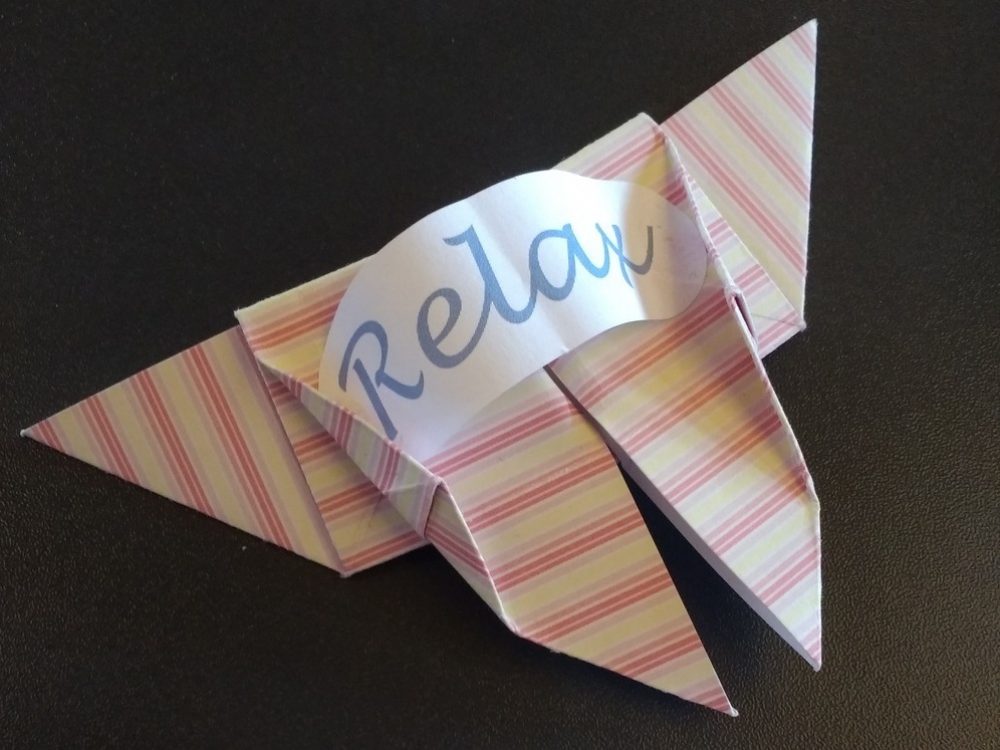
Last week at drop in was ‘relaxation week’. What’s drop in and why was it relaxation week we hear you ask? Well, drop in is basically what we call our after school club for young people. Every week night from 3.30pm until 6pm, young people from Schools all across Luton come and hangout here at the Youthscape building as soon as the bell rings for their final class. When they arrive, they usually head straight for the PlayStations, the pool table or to buy themselves a milkshake or a toastie! But that’s not all there is to do.
Every week, we have a different theme a drop in. The idea of each theme is to offer advice and to encourage young people to reflect on what that theme means to them and their life. To do this, we often set up activities and games based around that theme. For relaxation week, we were specifically looking at:
- Why rest and relaxation are important
- Different ways to relax and look after ourselves
- Relaxing physically, mentally, and spiritually
One of the activities we invited our young people to take part in order to explore what the word ‘relaxation’ actually meant, was collaging. If you search in a thesaurus, you’ll find that there are lots of words and phrases that mean ‘to relax’. ‘Unwind’, ‘loosen up’, ‘calm’, ‘sit back’ and ‘feel at home’ are just some examples. Can you think of anymore?
Using these words and phrases, we asked young people to pick the one that resonated with them the most, and to create an image or collage that visually represented how they interpreted it. Here’s how they got on…
👆 Some chose to create images that related to their lives specifically, by drawing their house or showing how they relax by sleeping.
👆Others made images that were very literal of the phrase they were trying to represent.
👆And some were a lot more abstract and emotive.
Whatever 'relaxation' means to you, make sure your taking time to look after yourself. This week, it's half term here across the Schools in Luton. We really hope our young people found this relaxation activity helpful as they prepared to take a break from their studies. If you wanted to try this activity at home, all you need is some bits of coloured and patterned card, some glue and some scissors. What does relaxation mean to you? 😊

In this article, SelfharmUK Web Manager Jess chats to colleagues Jo and Helen about mental health and being a teenager for #WMHD
SHUK: Who are you and what do you do at SelfharmUK?
J: I am Jo, I run the Alumina programmes most nights of the week. And this is a photo of me when I was a teenager...
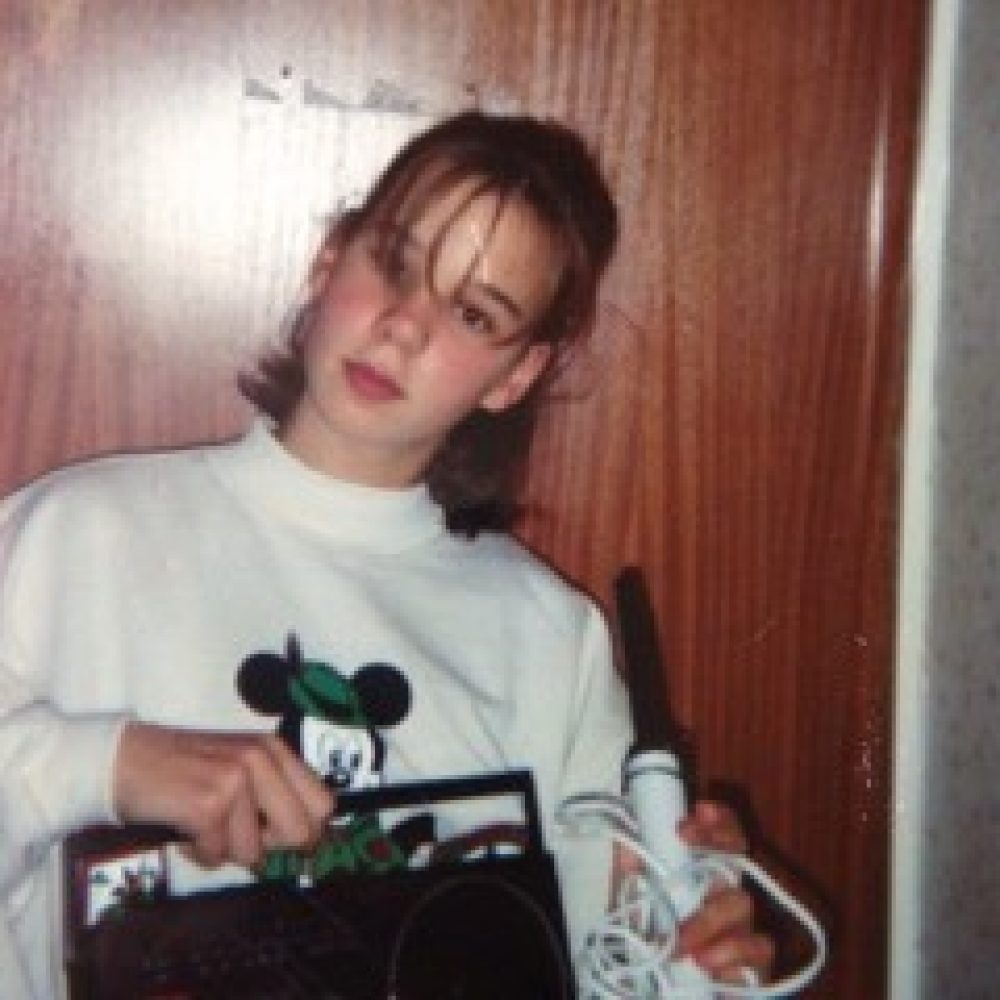
H: My name is Helen and I head up the emotional and mental wellbeing work that we do in Luton, this work feeds into what we do with the website and gives the young people of Luton a voice in what we do. I also deliver training and give lots of talks on mental health. This is a photo of me when I was a teenager...
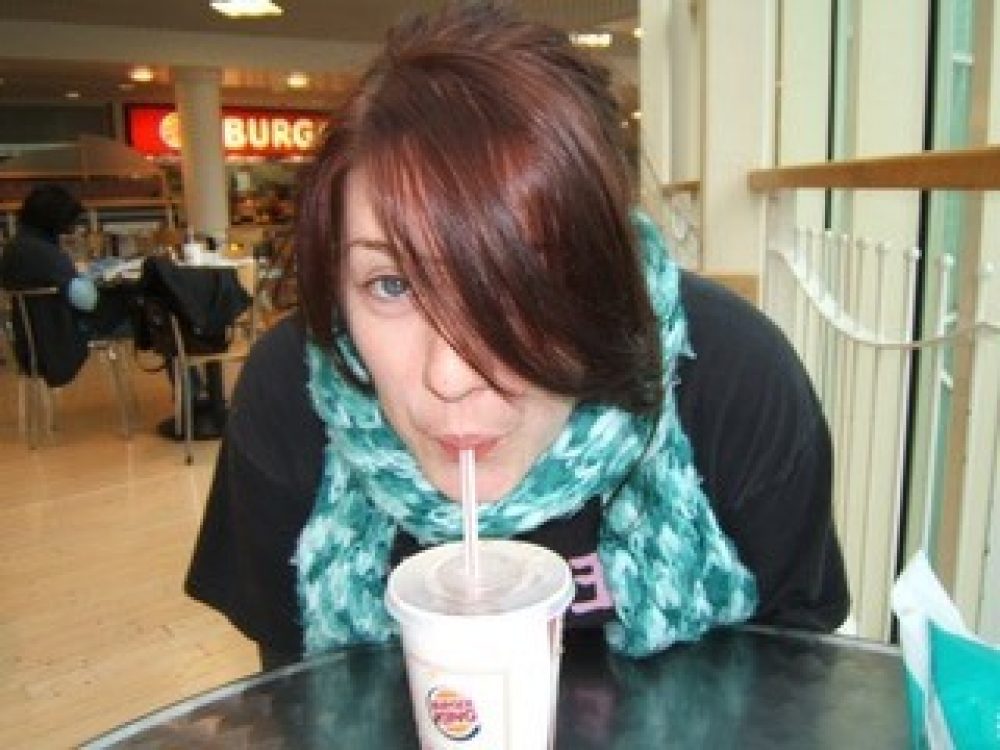
SHUK: How has your understanding of the importance of looking after your mental wellbeing changed from when you were a young person?
J: I didn’t have a clue about it as a teenager; I was told it was attention seeking behaviour if you were down, sad or angry. Now, because i have struggled with anxiety and depression at times, I understand that that is so far from the truth.
H: When I was a teenager and you were struggling with your mental health it was put down as "hormones" or "attention seeking" because of this I didn’t understand that your mental health was something you had to look after and just thought it was something you had to be ashamed of. Now I know it is just as important as looking after my physical health, I go to the doctor for my asthma, which means that I also go to the doctor when I’m struggling with stress or anxiety.
SHUK: What do you think was your hardest life change as a teenager to adapt to?
H: Being noticed maybe? Every few years my mum would have another baby and so I just spent a lot of time feeling lost and unimportant. Especially as three of my siblings were in school with me and they all had better grades and didn’t get into trouble like me. I felt like an outcast at home and in school and with my friends.
J: For me it was bereavement. My best friend was killed in a car crash and I lost my much loved grandma all within a month. Loss effects our mental health greatly, I just didn’t realise how much when I was 12.
SHUK: What do you think is the hardest change for young people to adapt to now a days?
J: I think social media plays a huge part in how we feel about ourselves; how we want to look perfect and look like we are having fun because we believe everyone else is. I know it’s not true as everyone is struggling with their own stuff, also trying to make it look like they are having an awesome time. It is hard to turn away from social media.
H: I think the change from being a child to an adult, it’s hard to adapt to when you are expected to be an adult and make adult decisions (such as choices about your future) but at the same time being treated like a child and still dealing with the physical changes of becoming and adult.
SHUK: When you were having a bad mental wellbeing day at School, what did you do? Was there someone you could tell? What did they say? Did you tell your friends? Did they understand?
J: I struggled to talk about my feelings when i was a teenager as my family didn’t encourage us too so , I didn’t tell anyone until I was in my late teens about how hard i had found certain things. I regret that now, which is why I do my job: I know the value of someone listening to you.
H: I didn’t really have anyone to talk to. I would yell at people or walk out of lessons or get in fights. When I expressed how much I was struggling to a few of my friends they would call me a "psycho" and would walk away from me until I was “normal” again. I just felt ashamed.
SHUK: What advice would you give to young people struggling with any aspect of their mental wellbeing?
J: Find help - whether that’s through a friend, parent, counsellor, online safe place (Childline, The Mix or Young Minds) - and begin to explore why you feel like you do. Don’t stay silent, there’s people who want to help.
H: Ask for help, people are much more understanding now, it’s not something to be ashamed of and there are loads of different places you can get help from, online, in person, over the phone and more (as Jo has mentioned above). Also find healthy ways of expressing how you feel, art, music, baking, writing, working with animals. Mostly be kind to yourself.
Happy National Poetry Day friends! To celebrate, we've got an inspiring poem by Nikita Gill titled 'A Conversation with My Mental Illness.' If you read it and want to share your thoughts, you can comment your answers to the below questions on our Facebook, Twitter, Instagram or Tumblr accounts. We'd love to hear from you!
What do you think is the main thing being said in this poem?
How does the poem make you feel? Why?
Are there any lines or words which you specially like?
A Conversation with My Mental Illness
Every sleepless night I am interrogated
by the darkness that lives inside of me.
It says to me:
'You are pointless.'
I respond:
'No one in this world is pointless.'
It scowls at me:
'You are a terrible person.'
I admit:
'I am a good person who did terrible things.'
It rages at me:
'No one needs you.'
I countered:
'There are people who have adored me.'
It seethes at me:
'And what of those who hated you?'
I sigh:
'Being unforgiving of others is a sign of insecurity.'
It finally explodes:
'I will make sure you always doubt yourself!'
And every night
I gather my courage
as my armour and say:
'And whenever you do,
I will look at the vastness
of the every changing style
the presence of a moon
that helps the sea
the same sunset that has been going
around the earth
for billions of years
and remind myself
that the same universe that made them
and gave them such purpose
also made me.
And nothing you say to me
will ever convince me otherwise
because that is a fact
I will never question about my journey.'
Taken from the book Wild Embers by Nikita Gill, p14.
I'll admit, when I was asked to write this blog, I wasn't sure how to start. Dictionary definitions have been done to death, and the definition of "self-esteem" doesn't really do a lot to explain what it's like to have good self-esteem:
"Belief and confidence in your own ability and value."
This is the first definition I found. I'm sure you knew that already. People talk a lot about having good self esteem, and believing in your own worth, and why good self-esteem is important. They're right -- it is important to have good self-esteem. You have to live in your own head, after all. It's important to get along with yourself. Having confidence in yourself, knowing that you're worth something, is important because it allows you to accept yourself, and buid on the skills you have, and learn to like yourself.
But where do you start? How do you build good self-esteem?
There are a lot of ways to do it. Why don't you make a list of all the things you like about yourself? Not just physical traits, but skills you have, or interests you love? That is the most basic and simple way to make yourself realise that there are things about you that are inherently valuable, things you're good at, things you're interested in.
But I'll tell you something that most people don't say, when they talk about self-esteem: Everyone has moments where it's hard. Where you feel unconfident, or out of your depth. That's why having good self-esteem is so important. Because, when you feel unconfident or out of your depth, you know that those feelings won't last forever, and you can pick yourself back up. Having good self-esteem doesn't mean that you're confident all the time, just that you have the tools and knowledge to remind yourself that you're valuable and important.
Another thing which helps improve your self-esteem is self care. Self-care isn't just buying some super fancy soap from Lush and baking a chocolate cake from scratch. Self-care can be something as simple as having a long shower, or eating your favourite food, or listening to your favourite song on repeat. Doing things that make you happy improve your self-esteem, because they improve your overall emotional well-being. Try to treat yourself once a week, if you can.
Building self-esteem, and maintaining it, is an ongoing process. It takes a long time, and it's not always easy. But it's so important to accept yourself. I hope these tips have helped, a little!
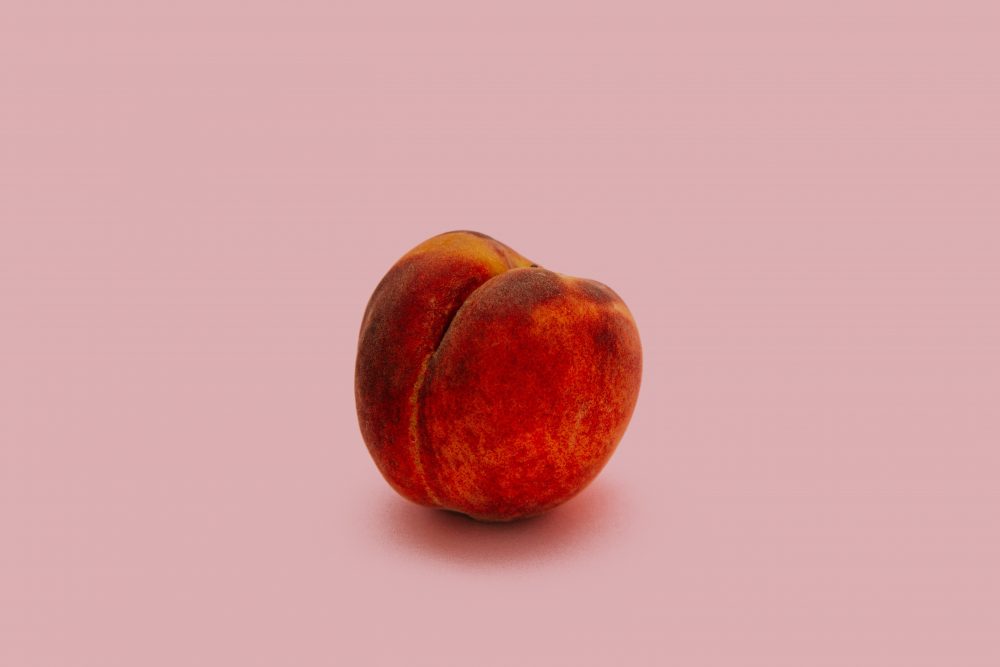
What have all these people got in common?
· Matilda
· Charlie
· James
· Sophie
· Danny
Yup, they are all imaginary characters, from the imagination of Roald Dahl. None of them are real, none of their lives are real. And yet…
They are orphans, sufferers, victims of bullying, often worried, scared and voiceless, strugglers who undergo changes to become the heroes of their own destinies.
Don’t we sometimes wish we could have that one person who encourages us, inspires us and help us, a magical person to guide us through our trials and pains?
Of course, you know that real life doesn’t have magic, Big Friendly Giants nor gigantic peaches that we can fly away on.
It does, however, hold real life catalysts: people who can help us become more of the person we want to be. These catalytic people are people who listen to us, who help us deal with the daily challenges we face. They might be a friend, a family member, a teacher, a counsellor, a CAMHS worker.
They aren’t magicians, they can’t make everything better, but, if just for 10 minutes a day, they make you feel like you can do this, then they are your BFG or Miss Honey.
Find your Miss Honey today!
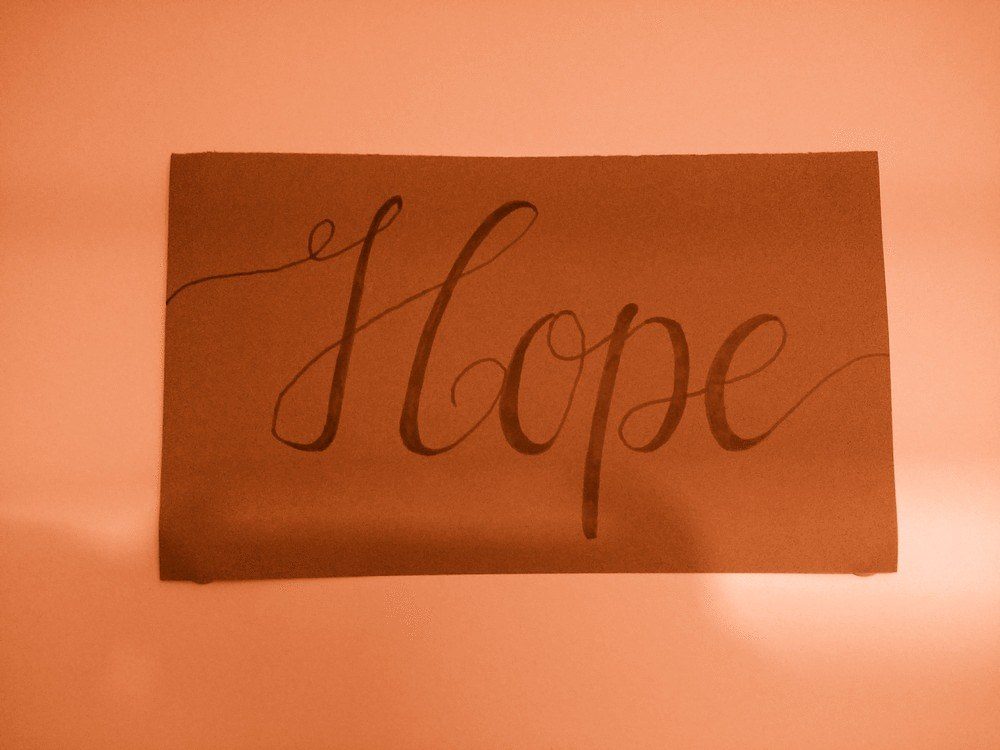
The Hope group is a small group of young girls that meet every week to help each other encourage positive mental health and emotional wellbeing within their every day lives.
The group has been running for a few months now and we wanted to share with you some of what we've been up to. So far, we've...
Talked about our aims for the group 👍 ------>
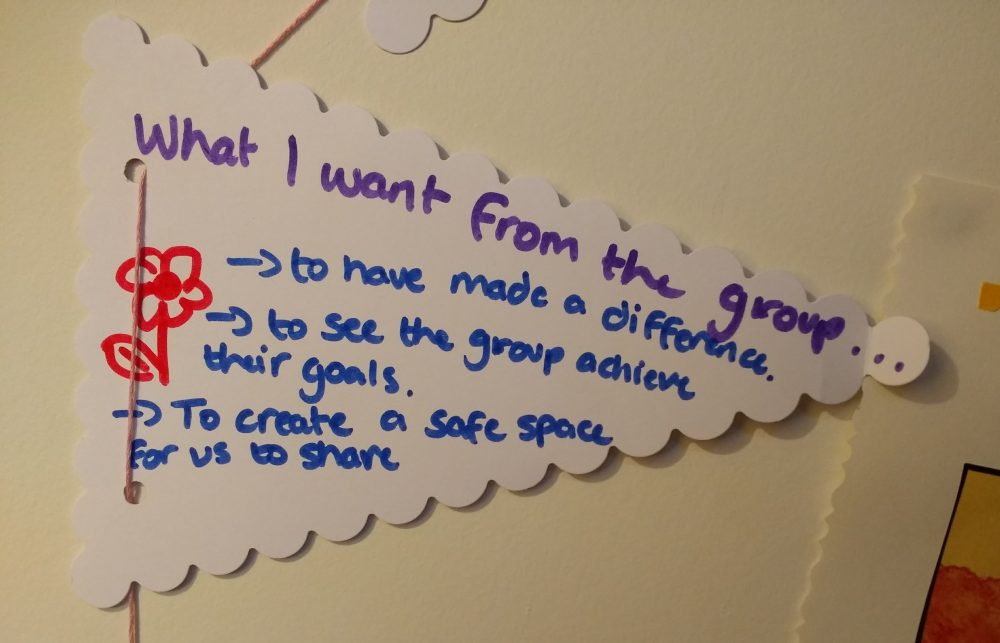
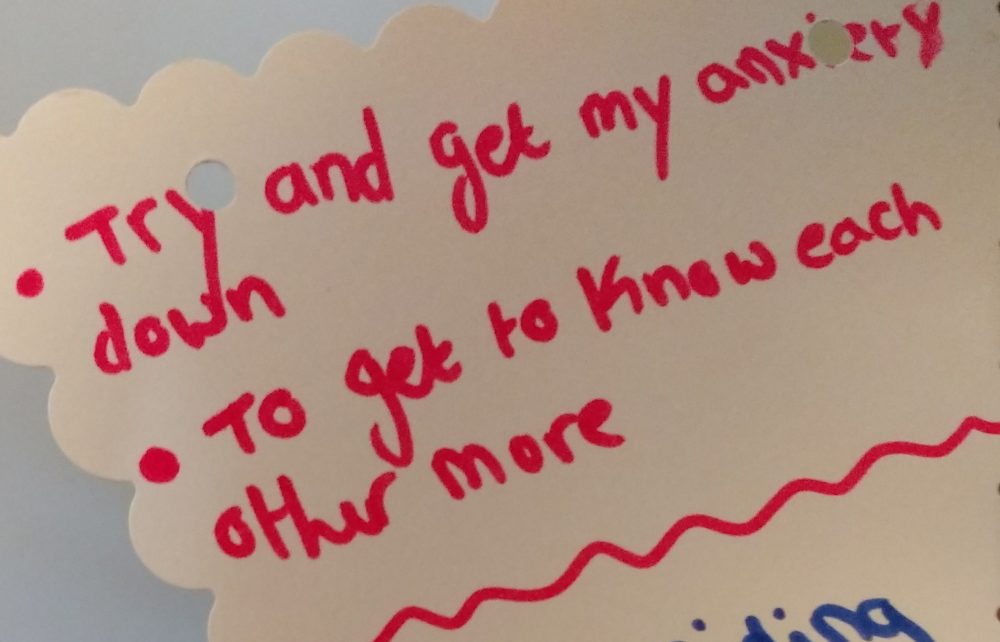
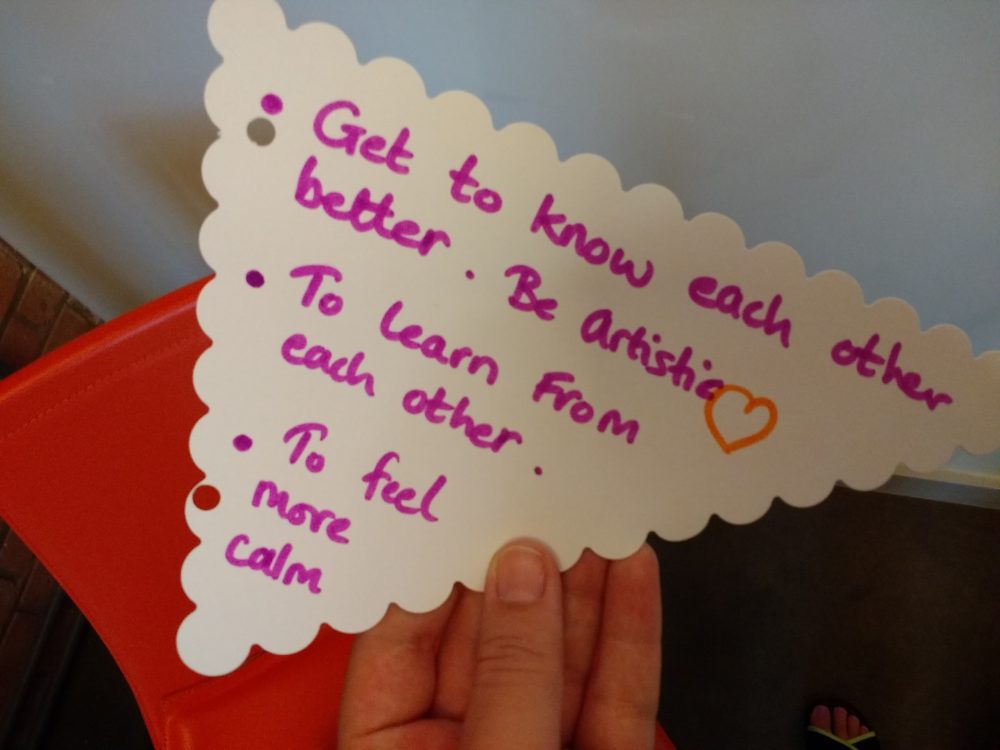
Shared what helps us when we're having tough days 👎 ------>
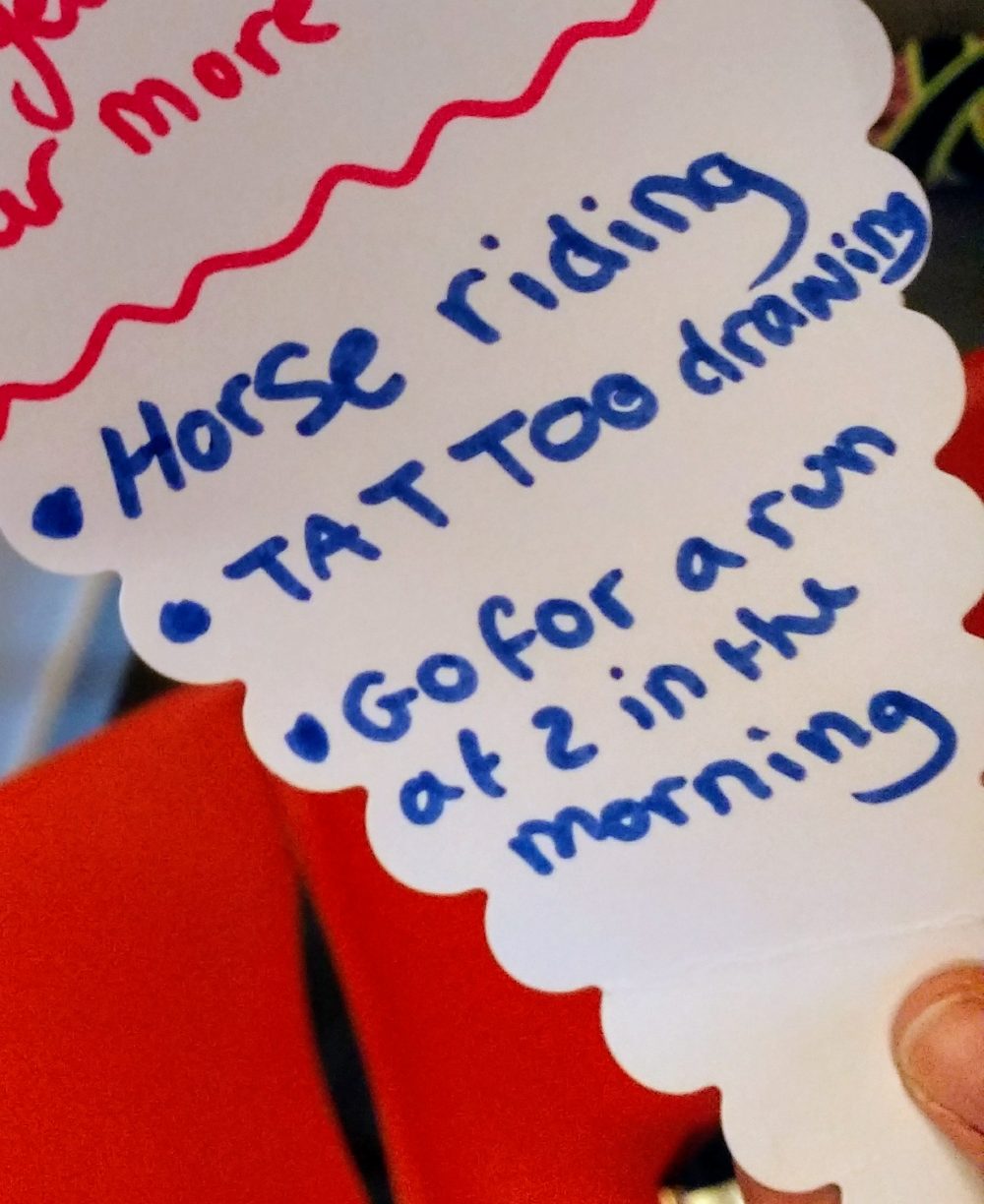
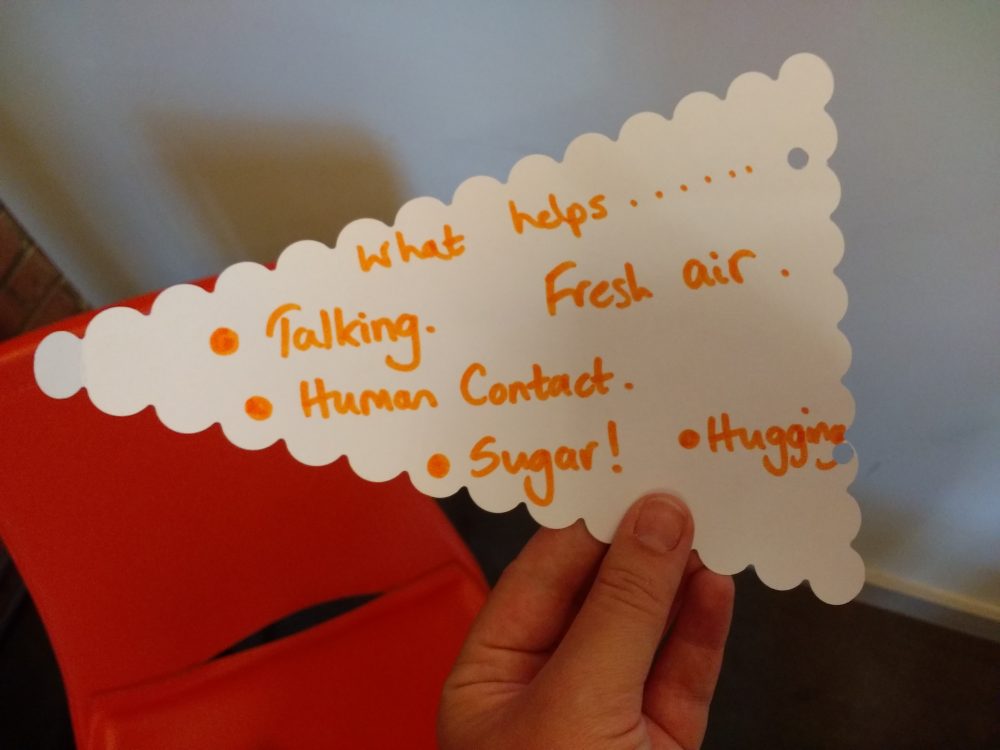
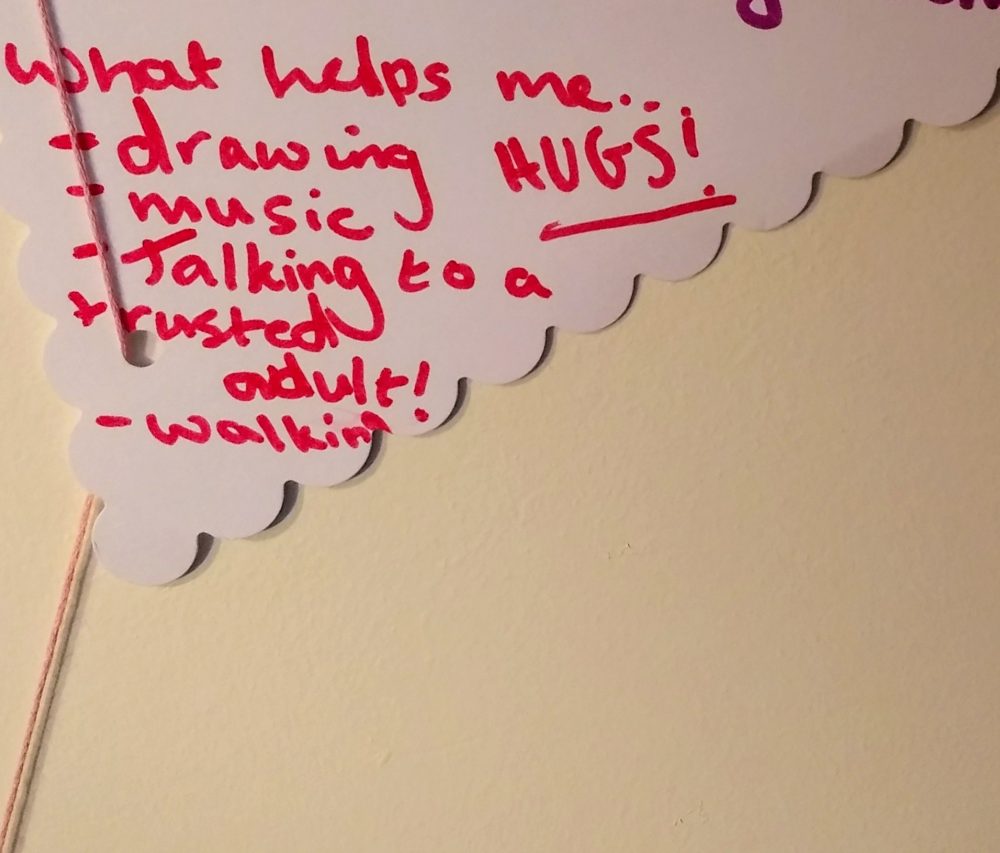
Discussed the things we're looking forward to 👀 ------>
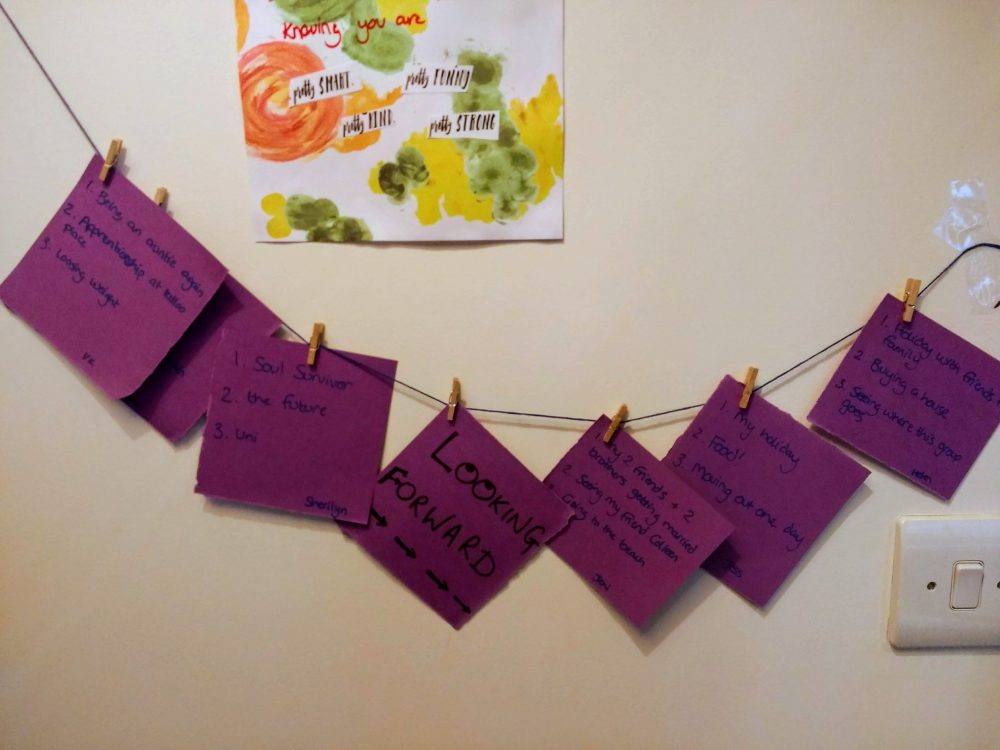
And the things we're always thankful for 💝 ------>
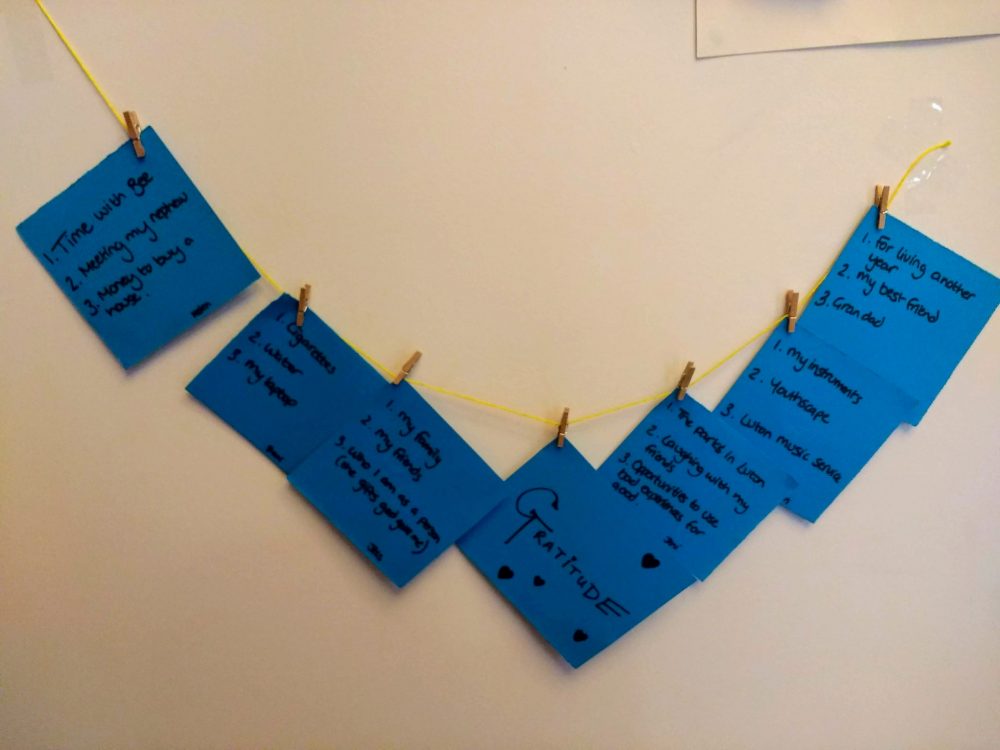
We've even created and designed our own positive quotes 💙 ------>
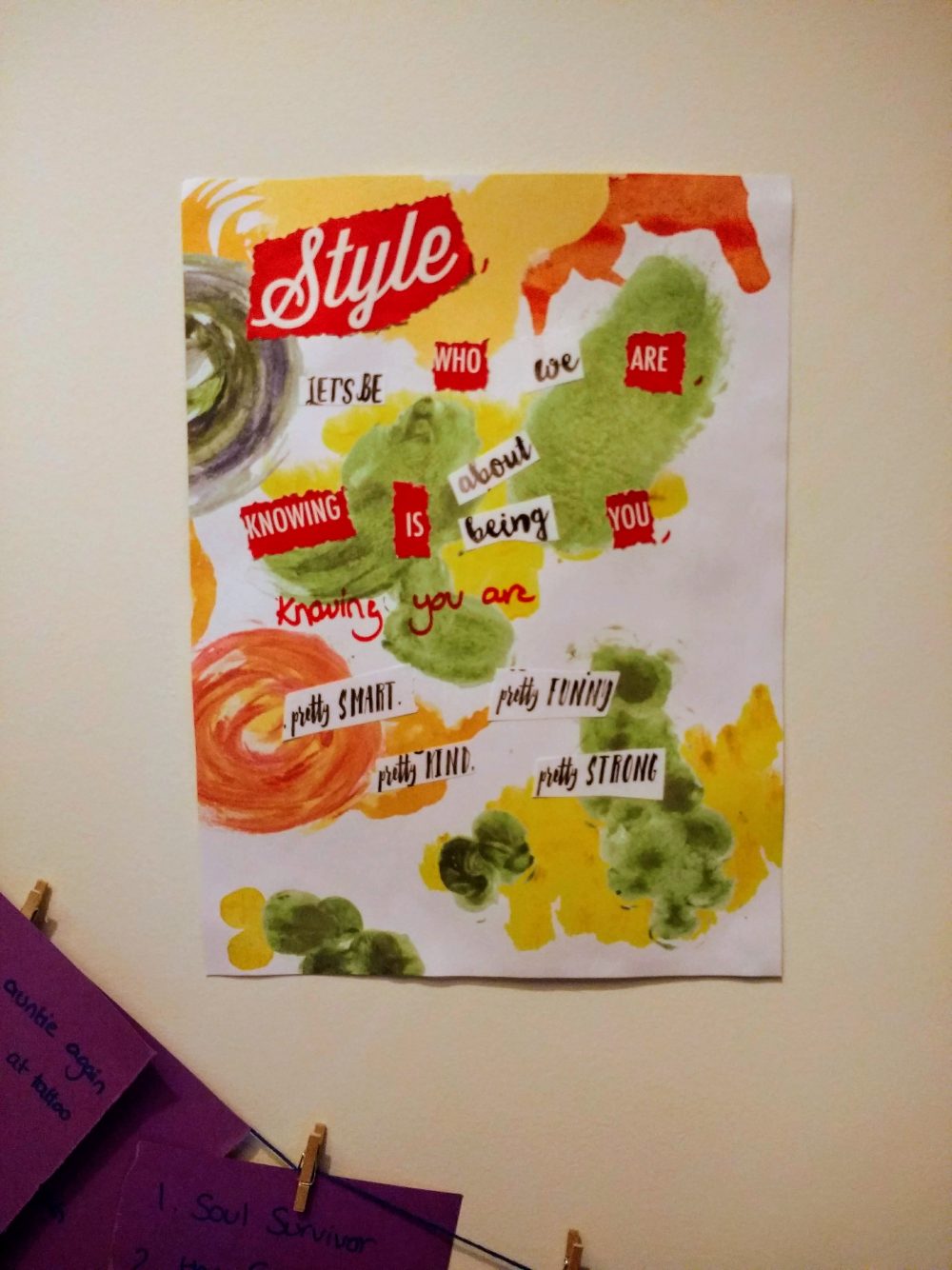
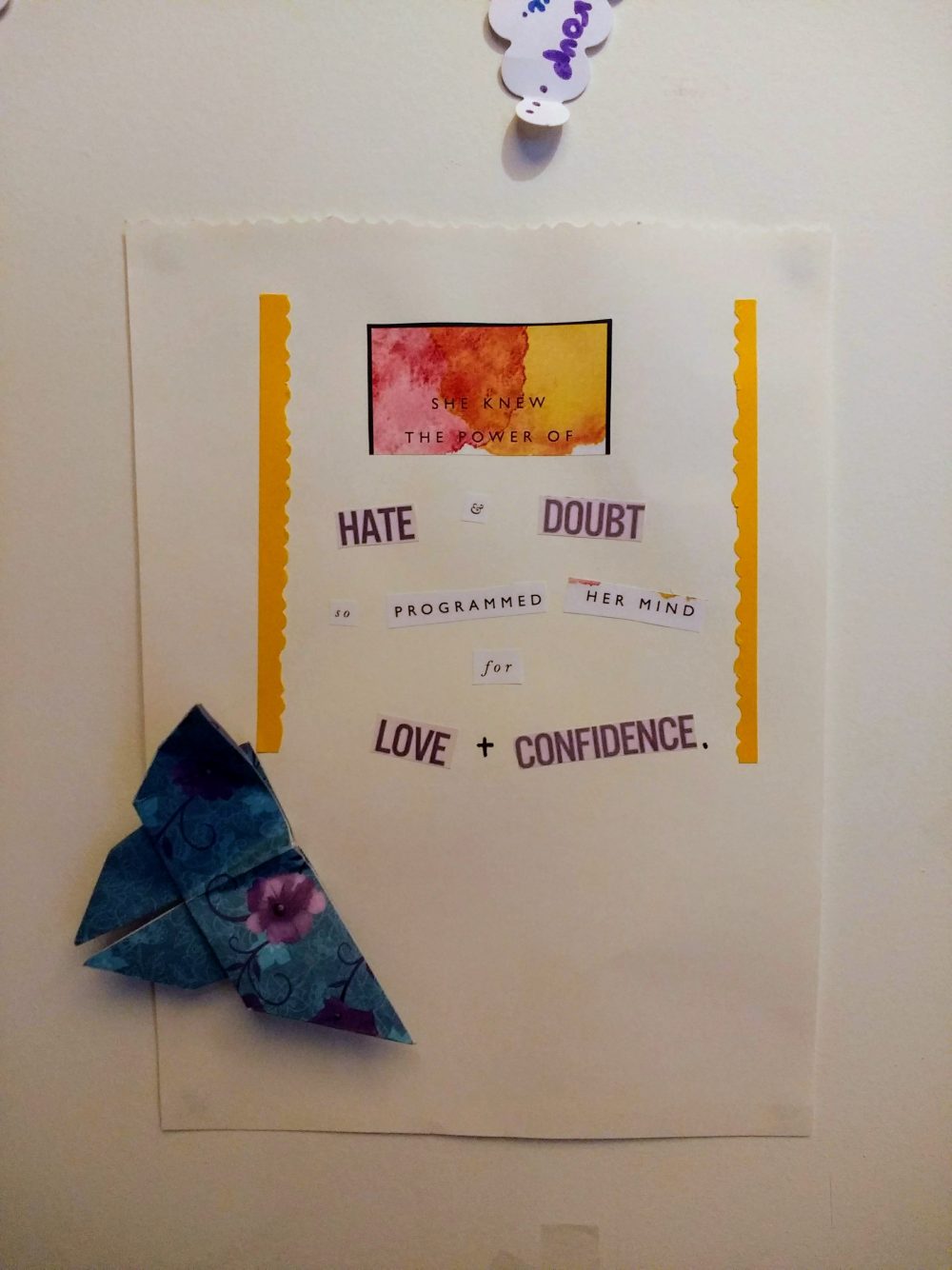
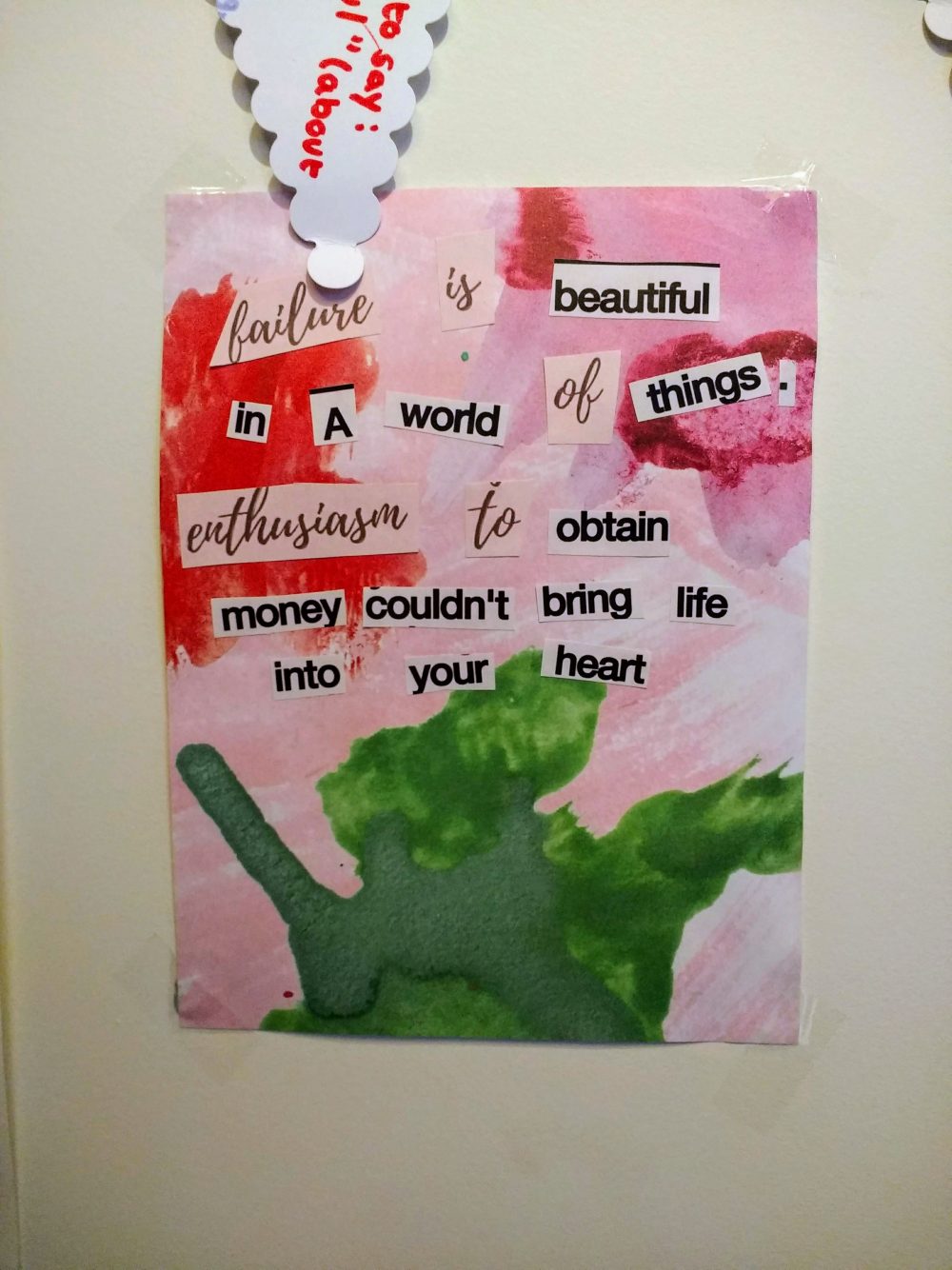
And did some decoupage too 🦄 ------>
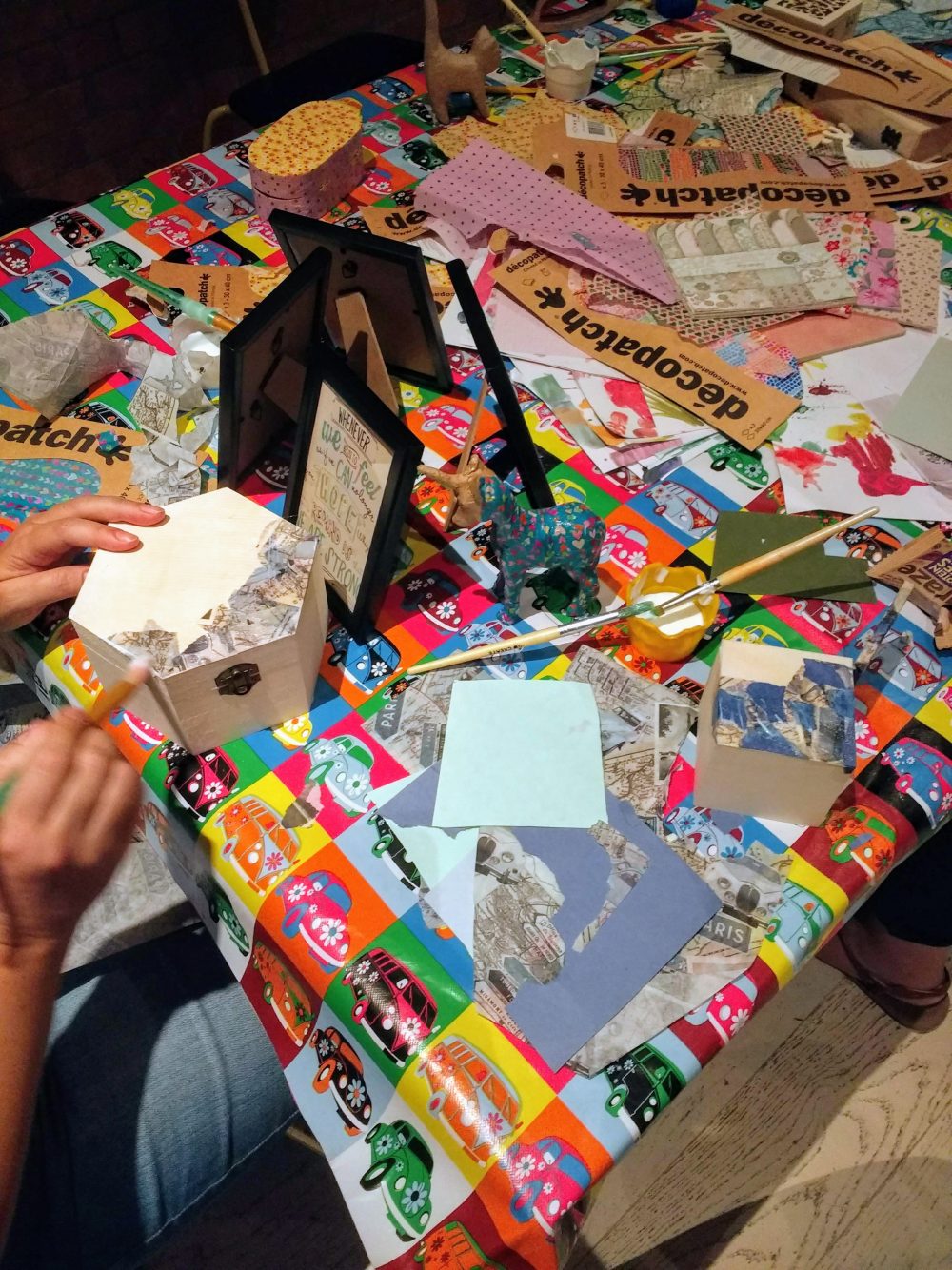
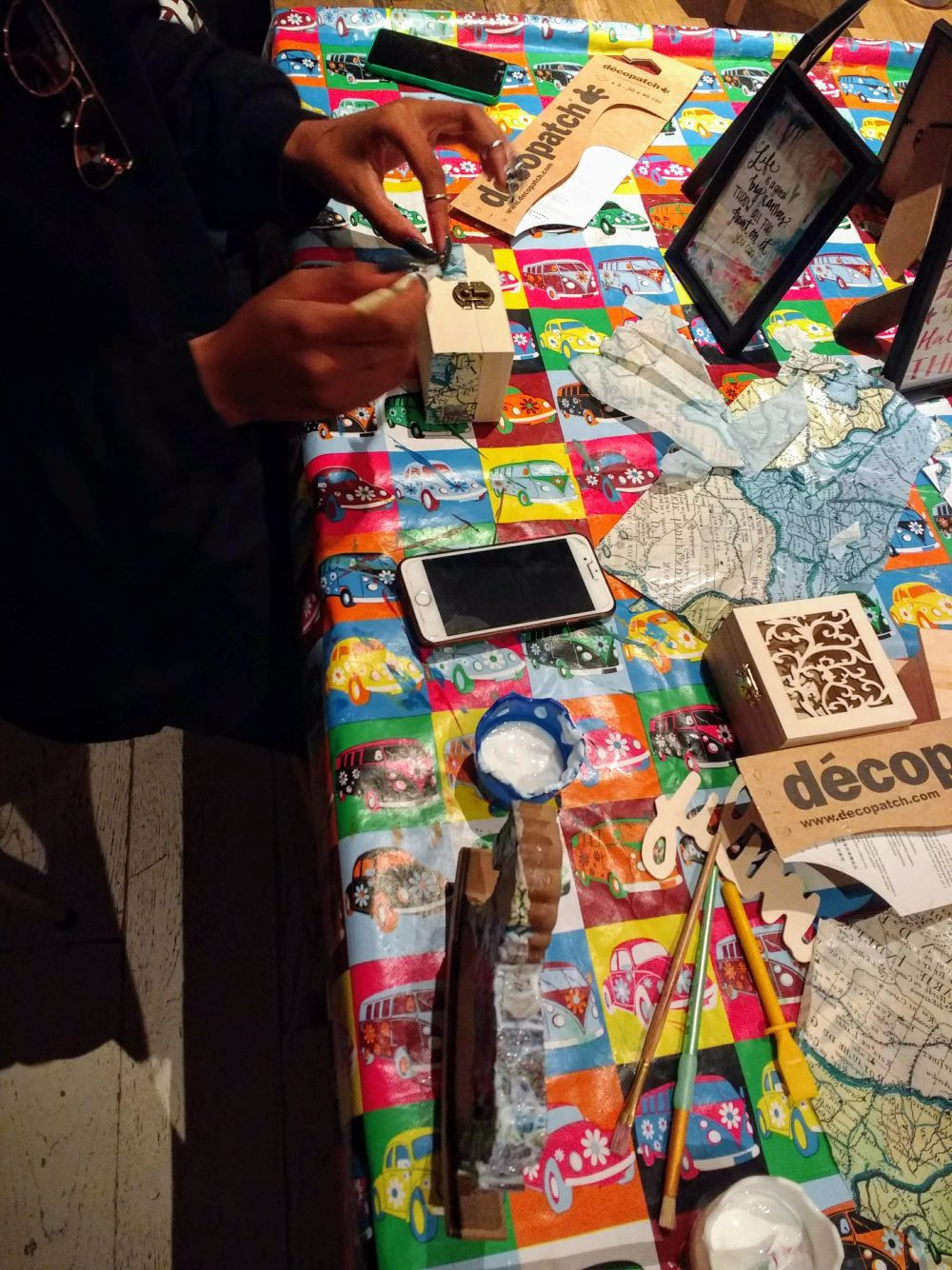
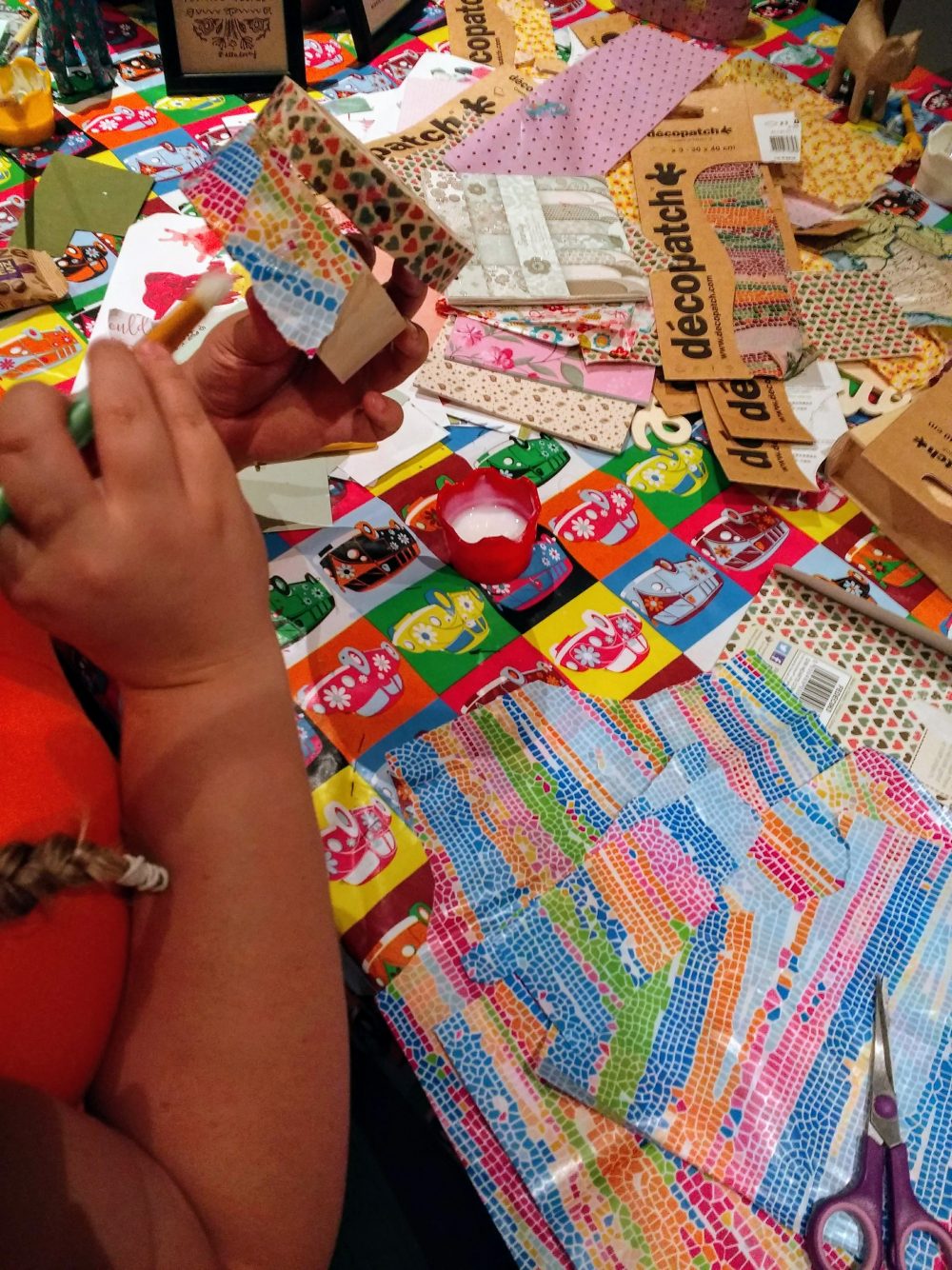
If we could give you any message, that message would be to believe and to have hope that whatever you're going through, you're going to get through it and become a stronger person because of it 💪 ------>
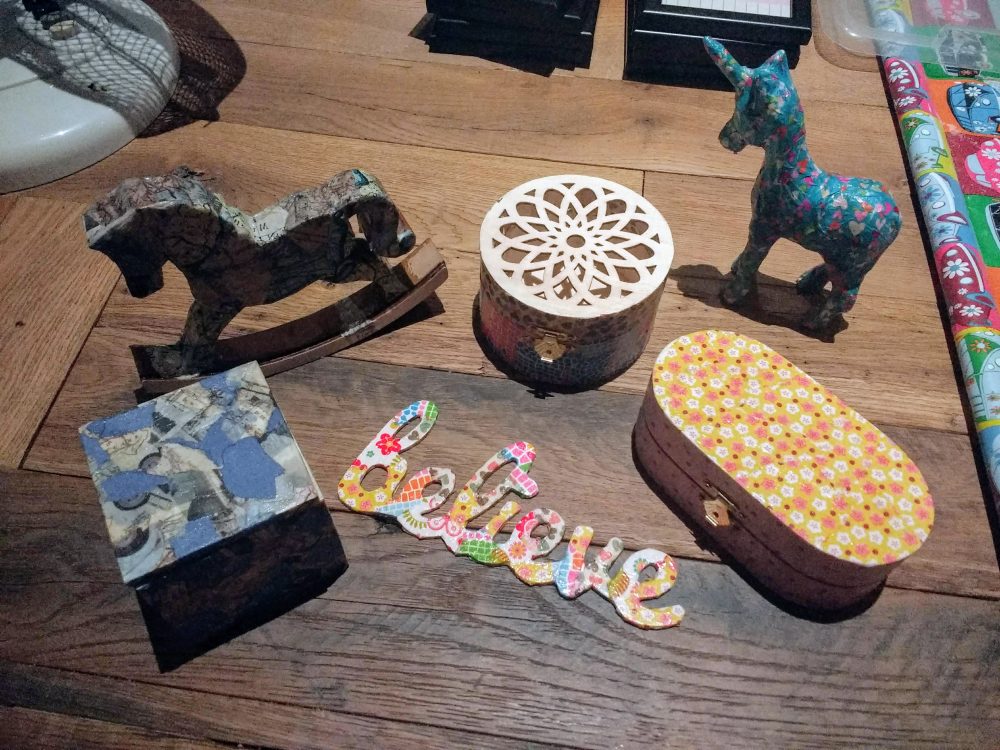
Love, the Hope group x

